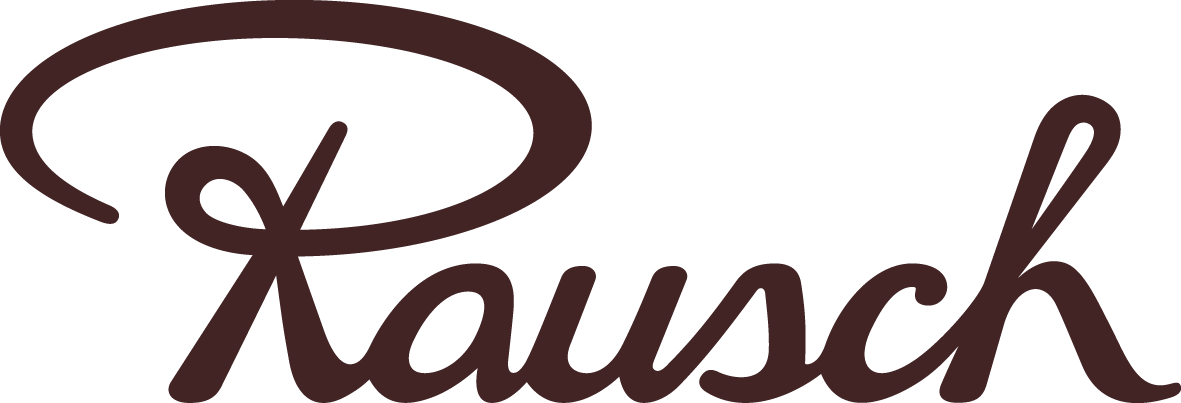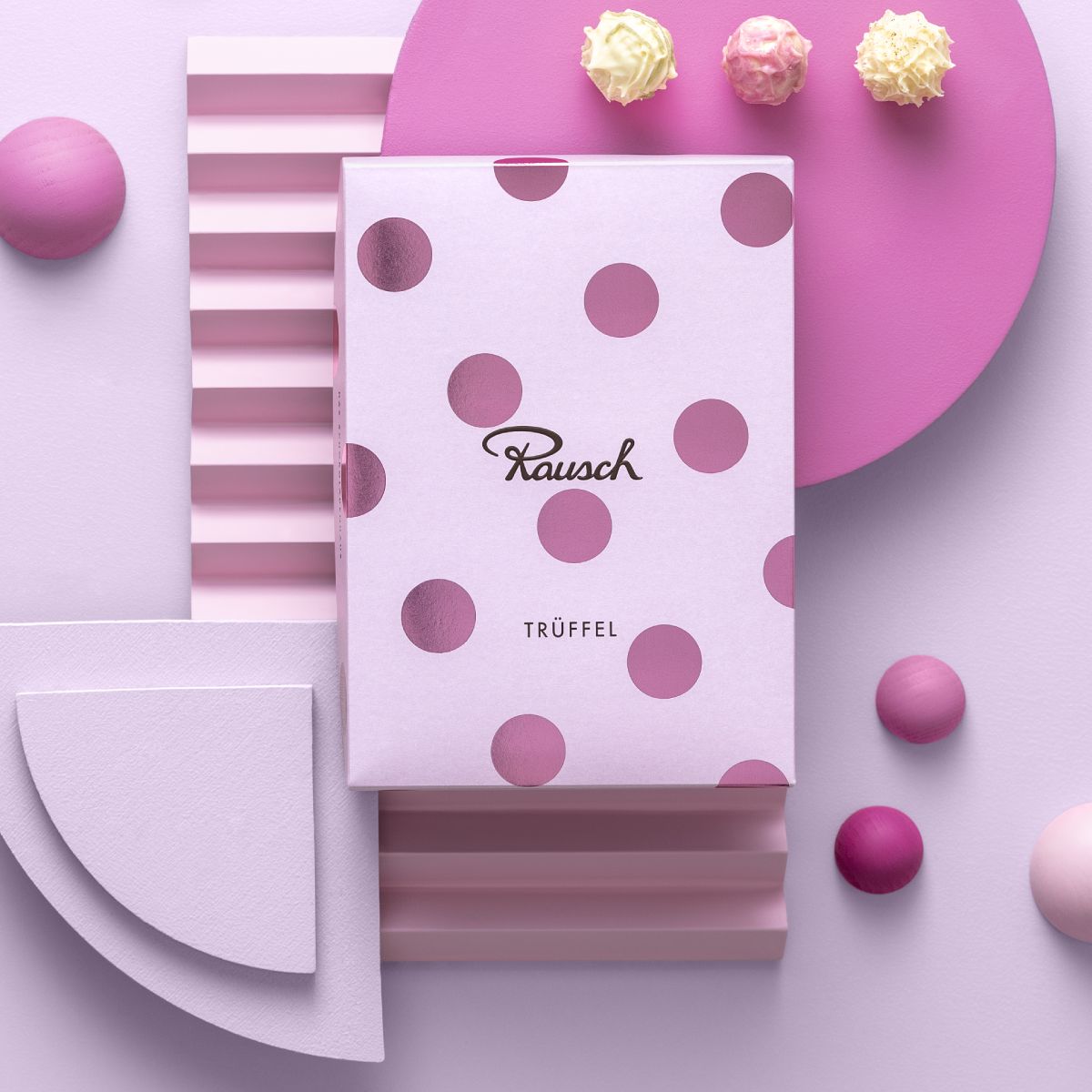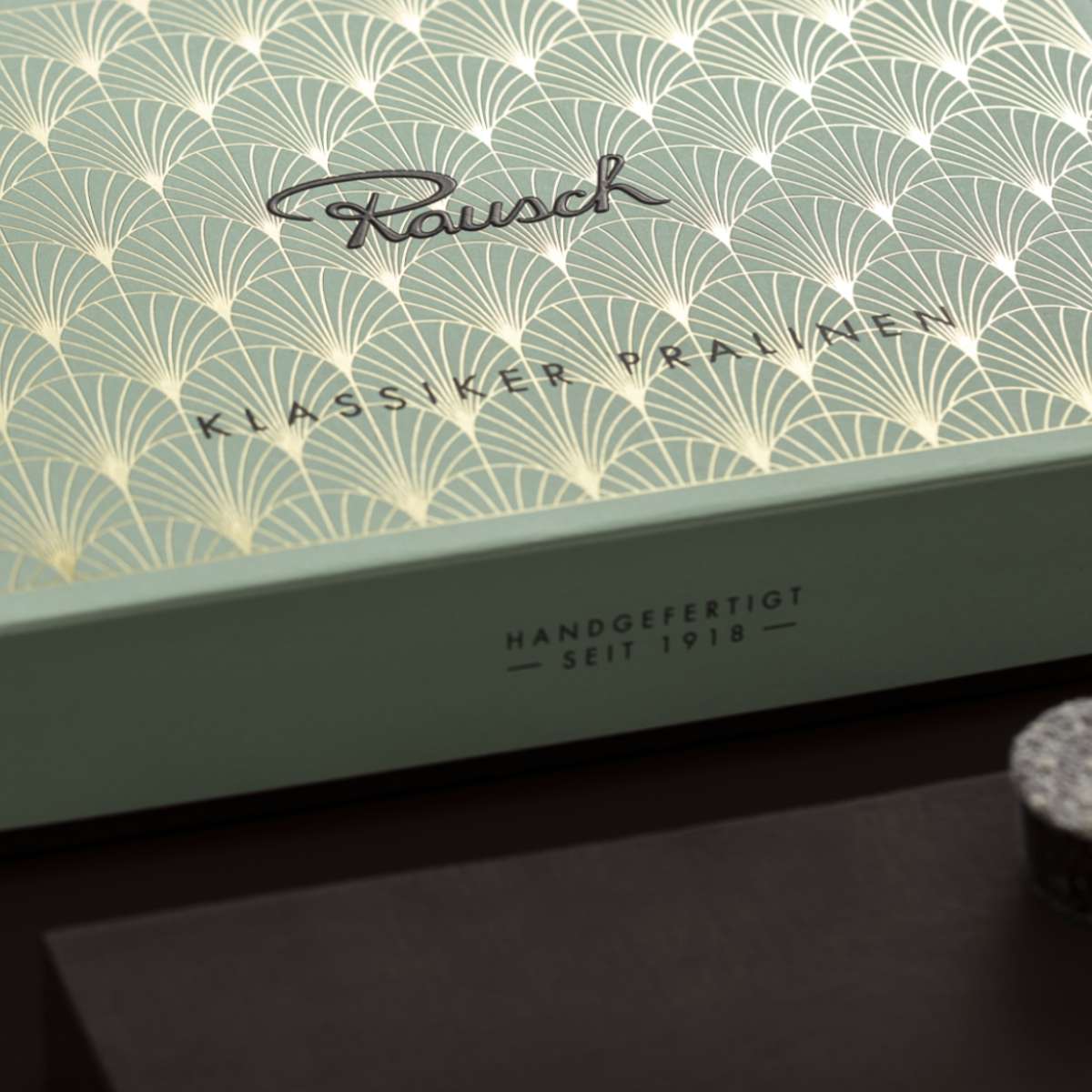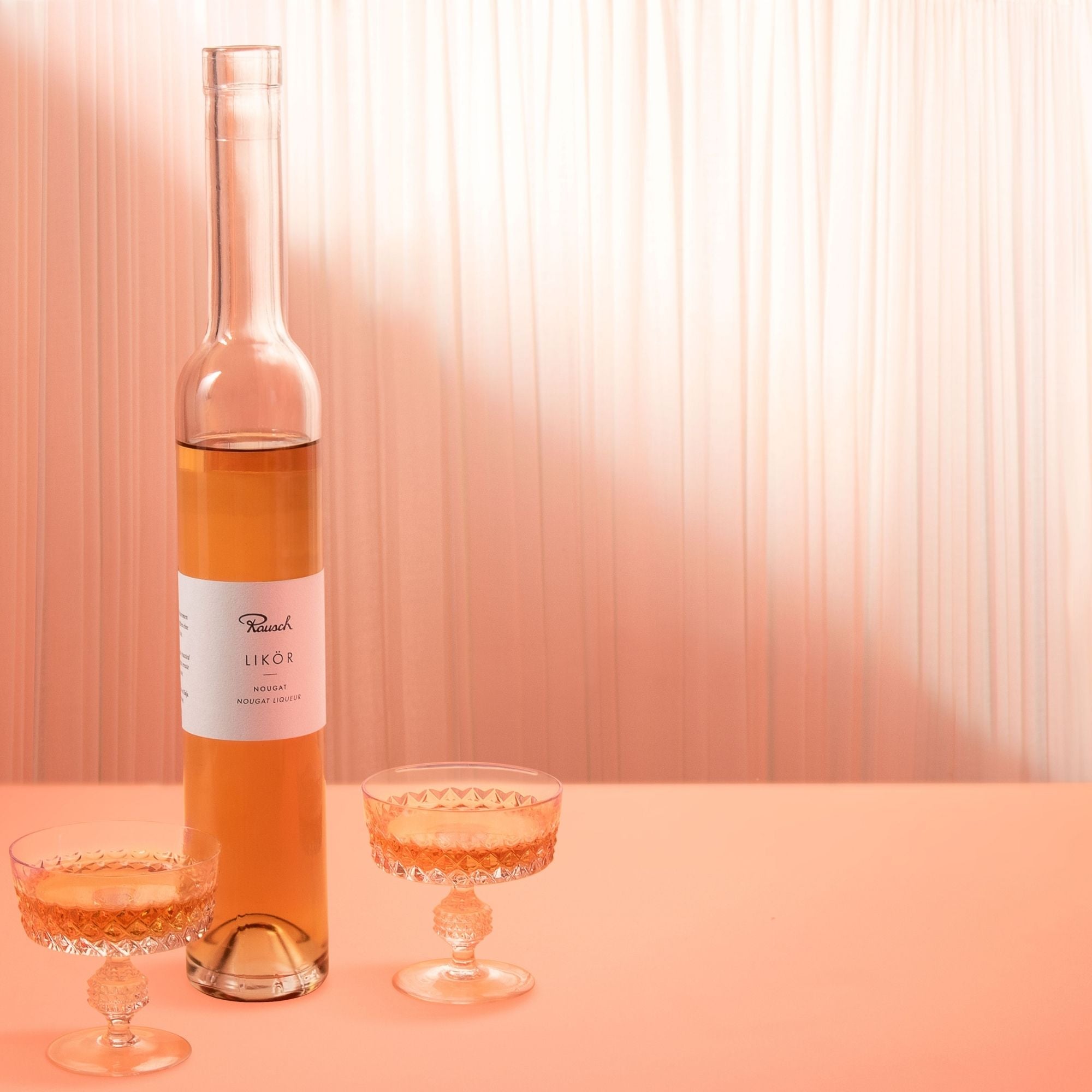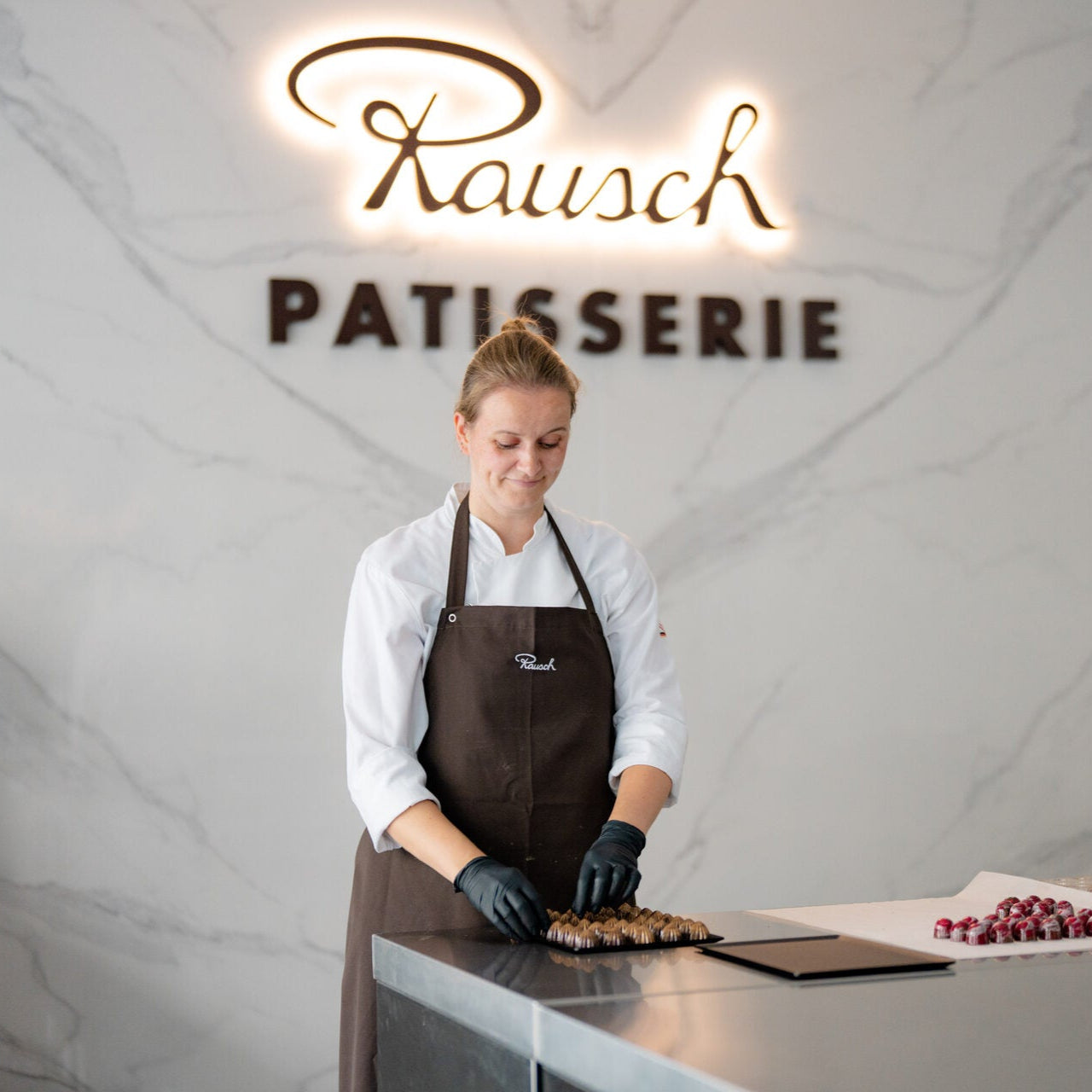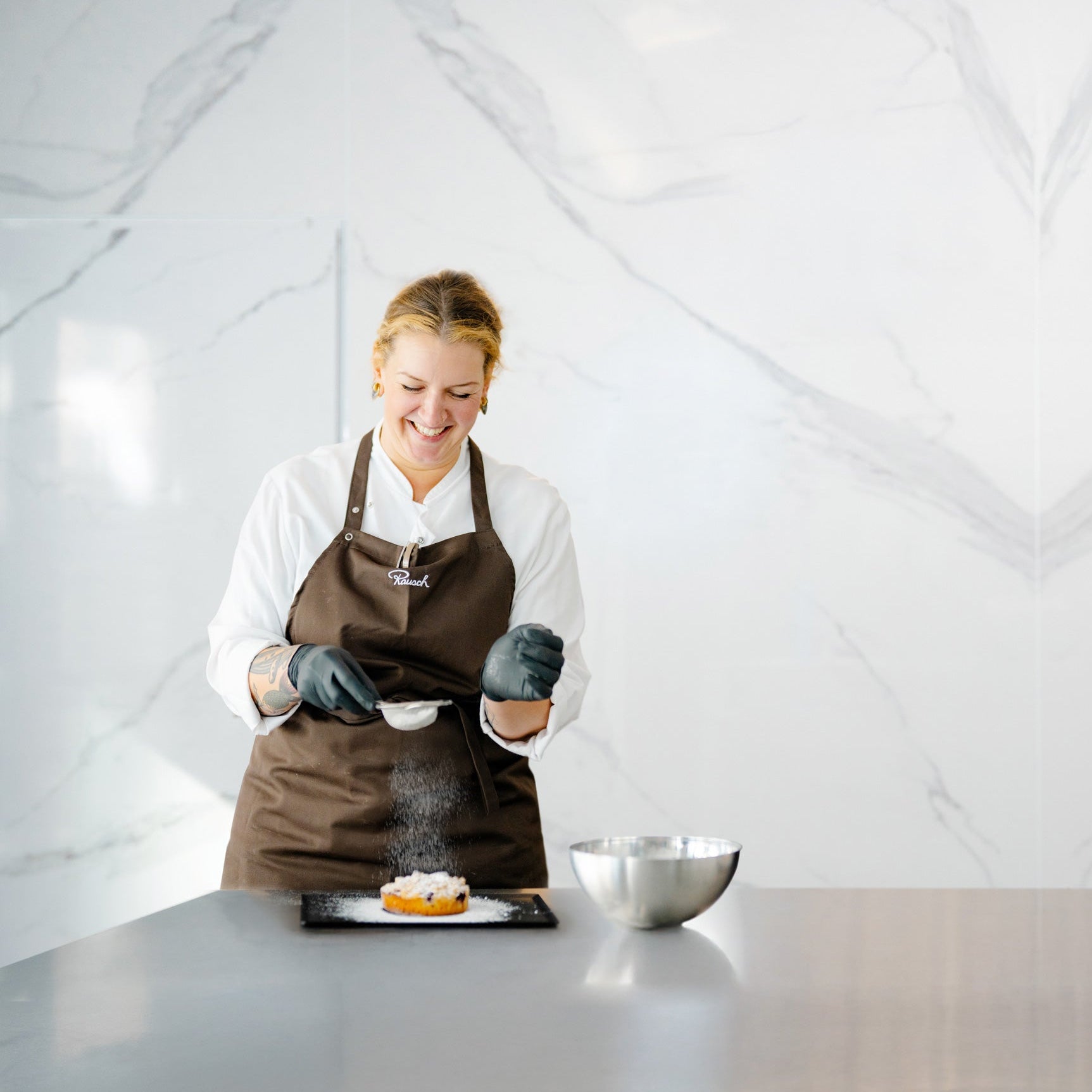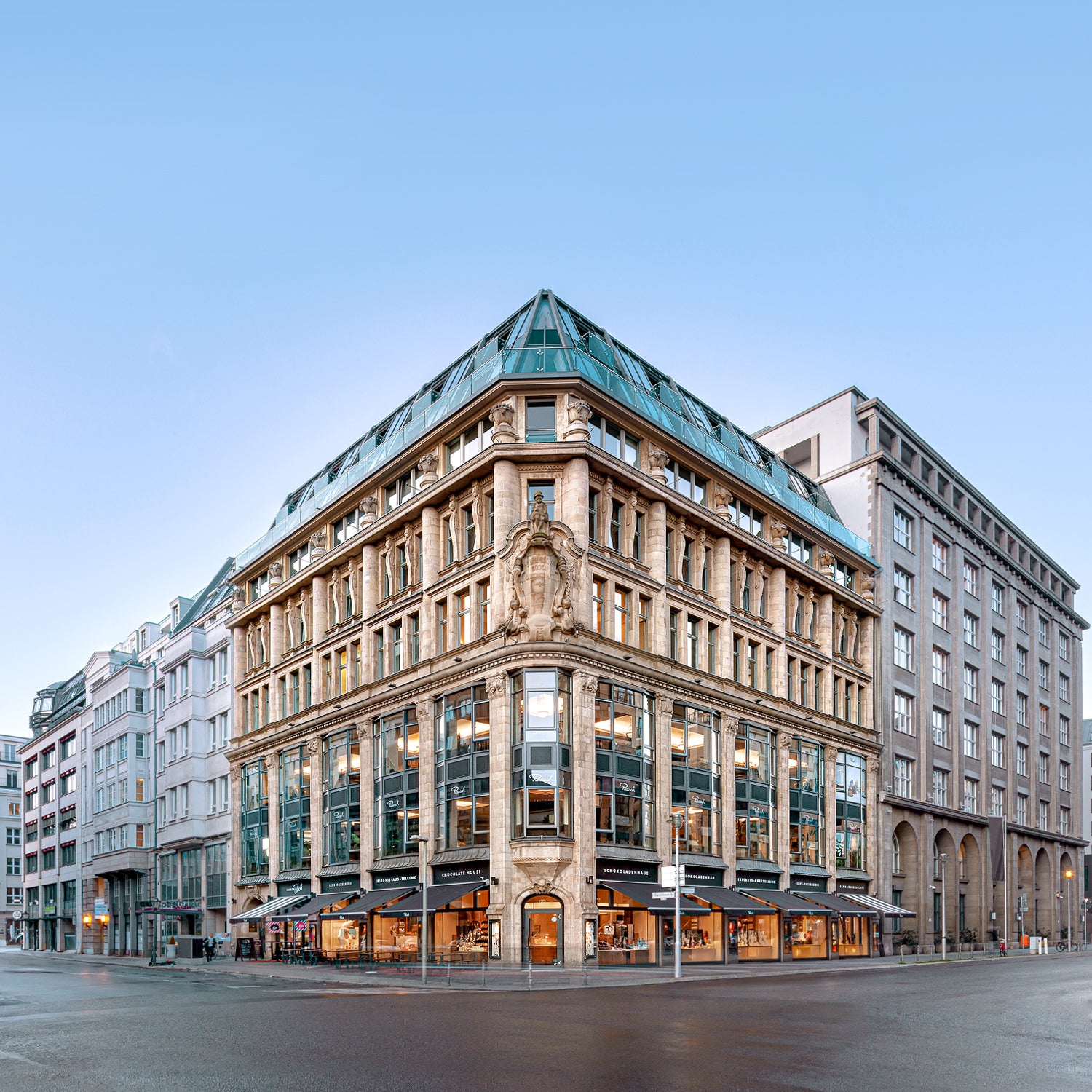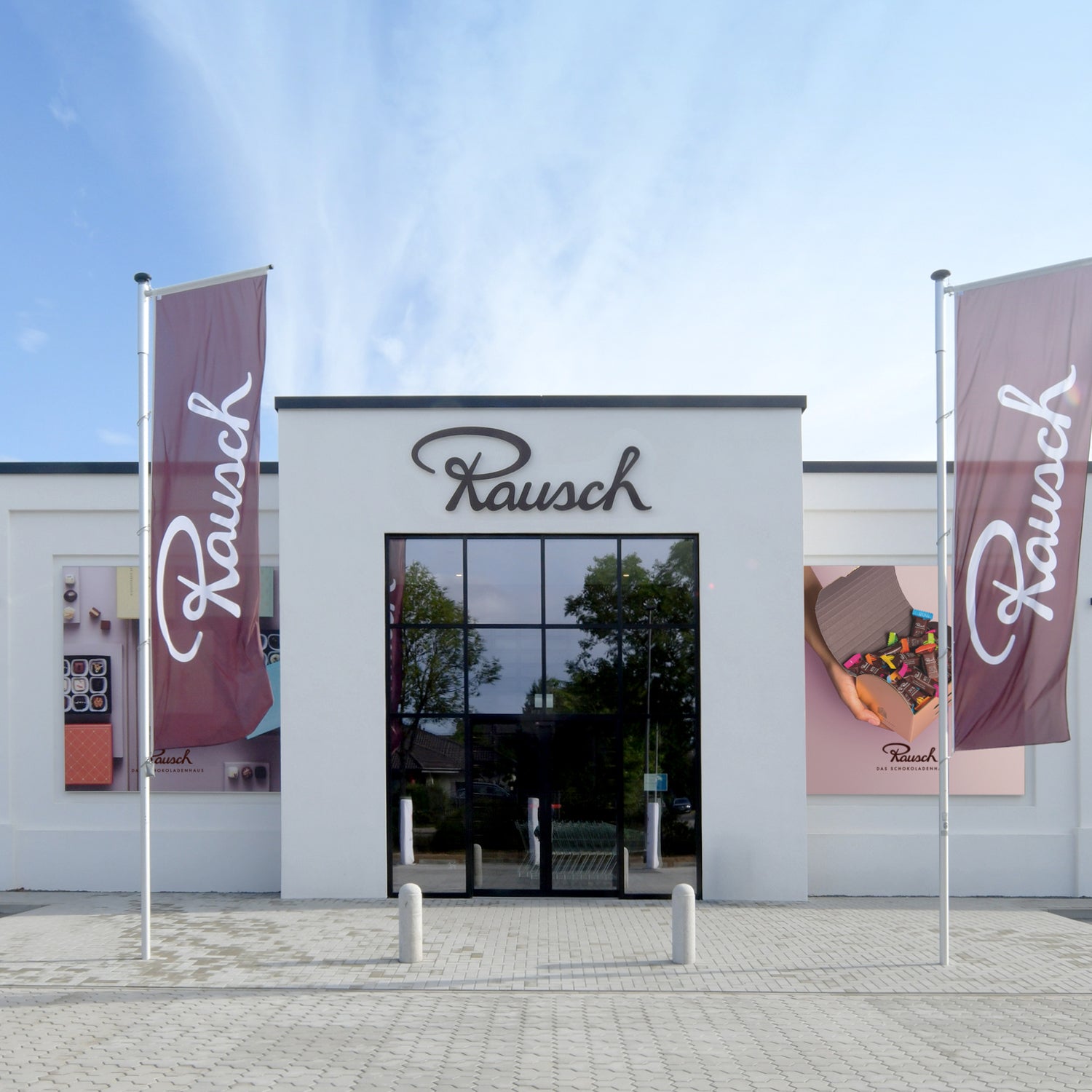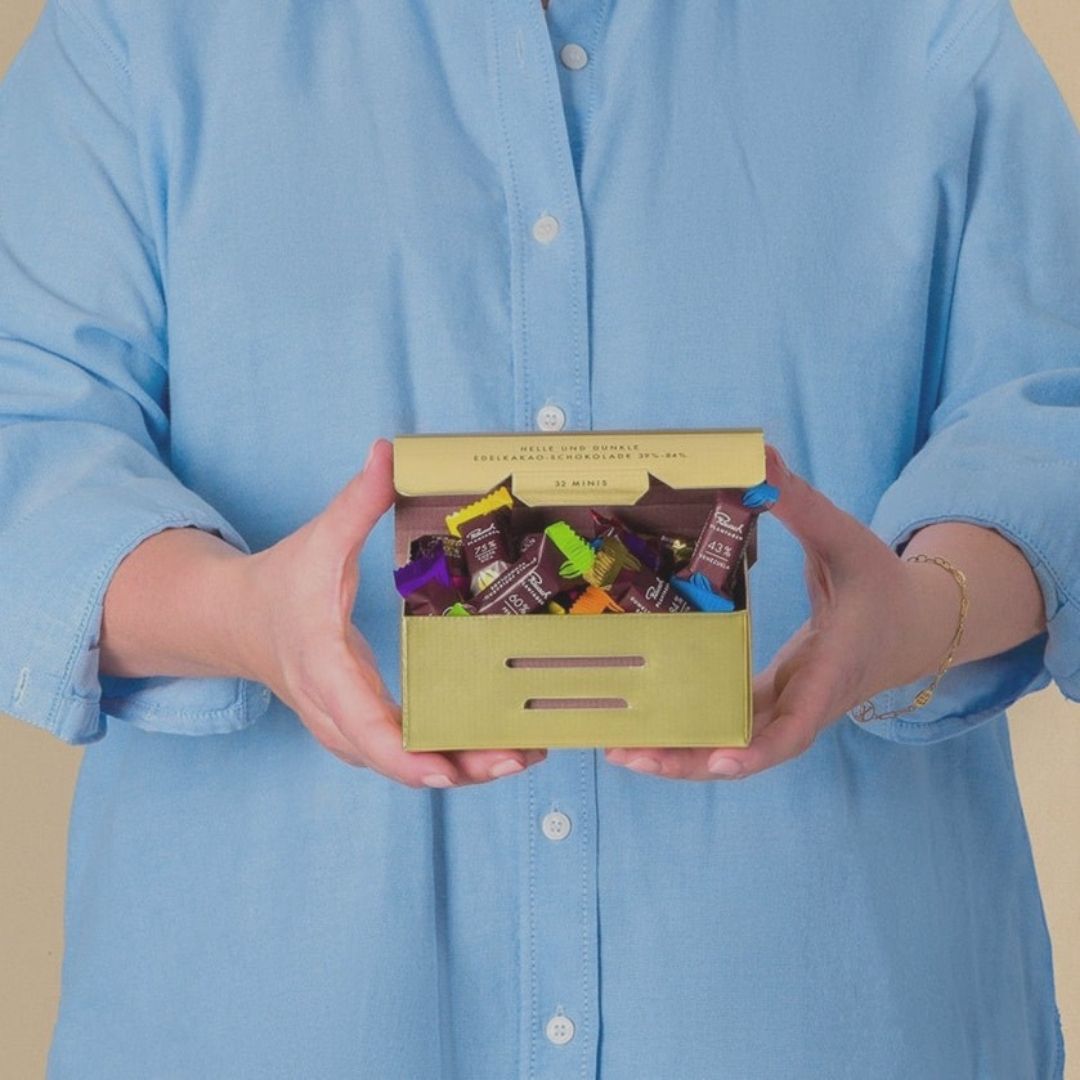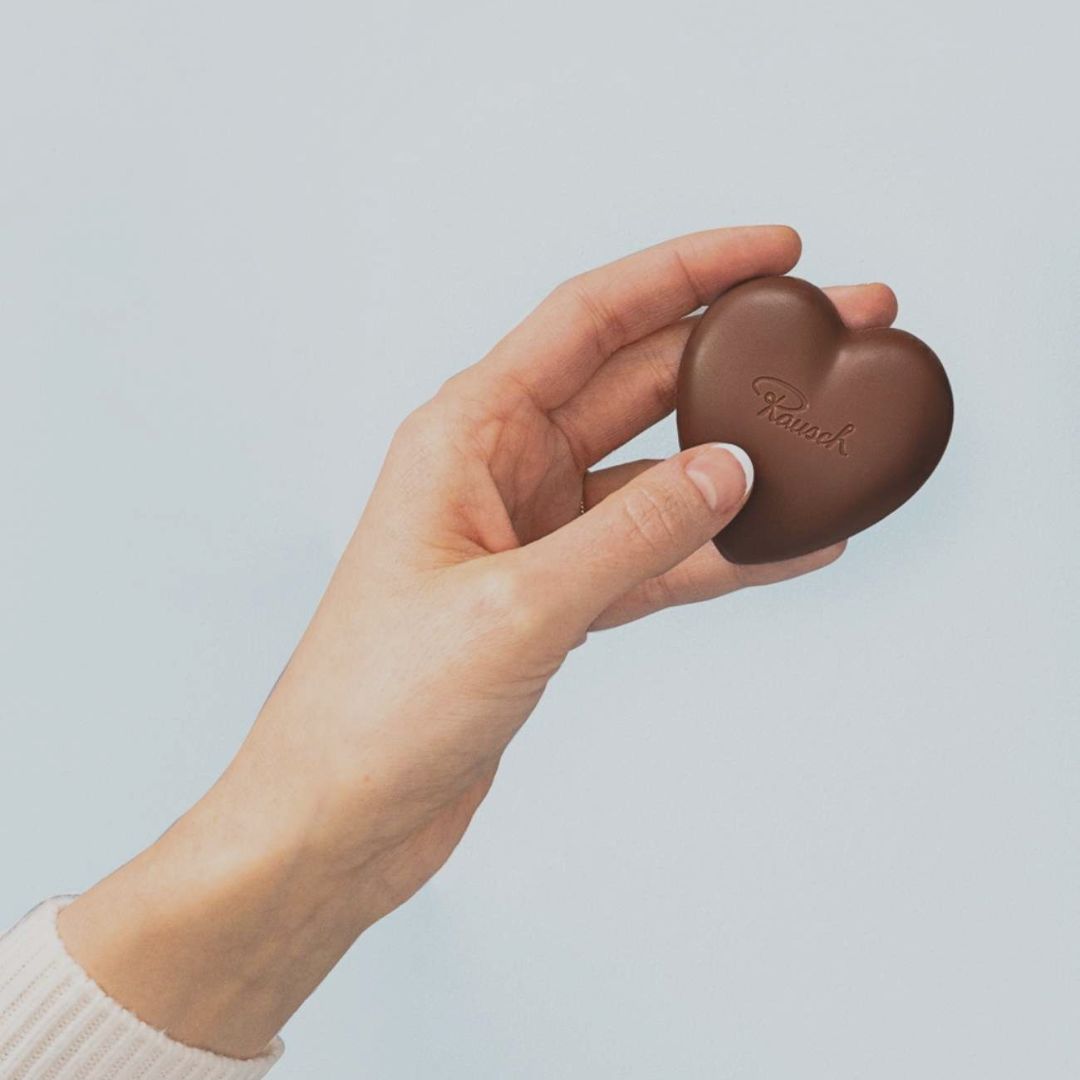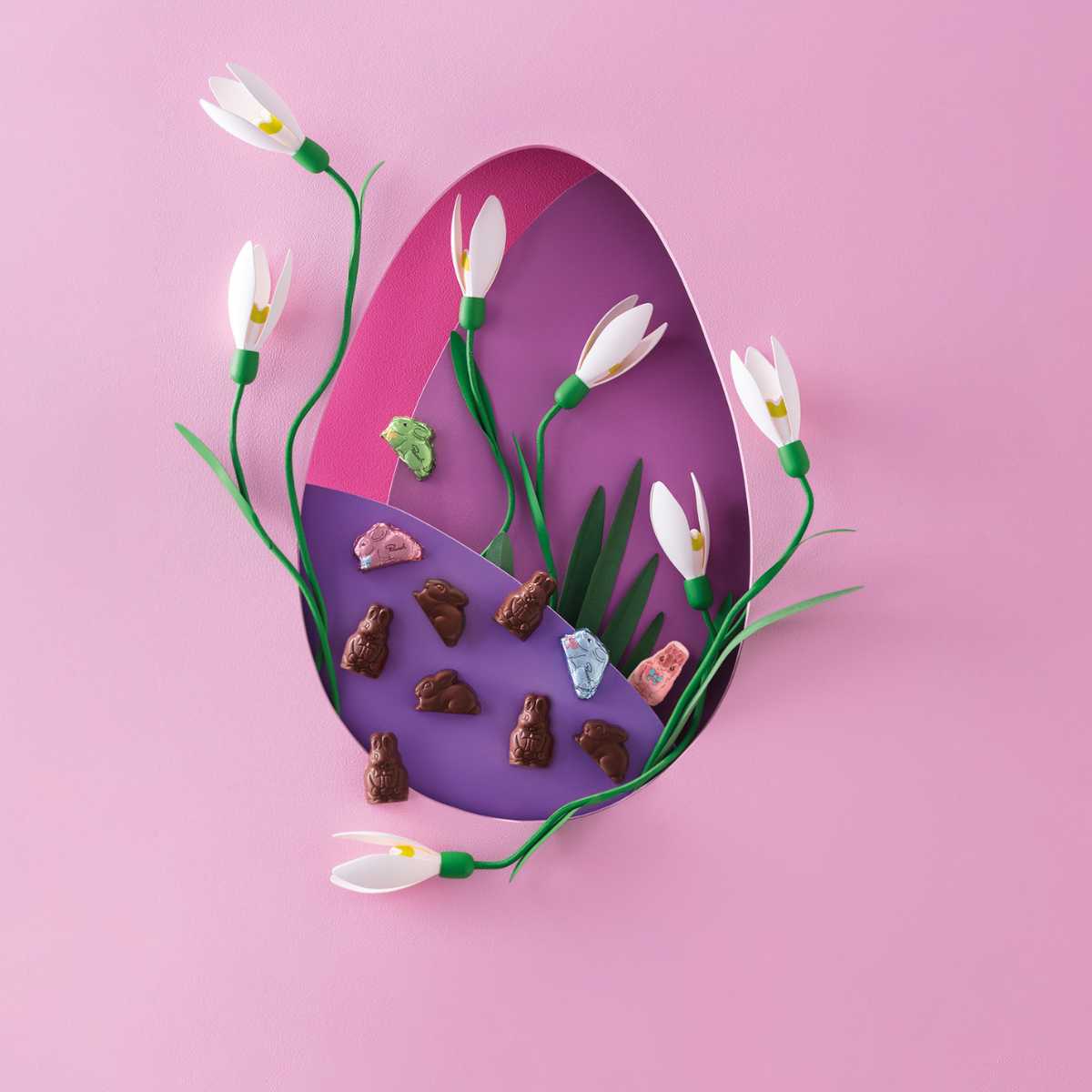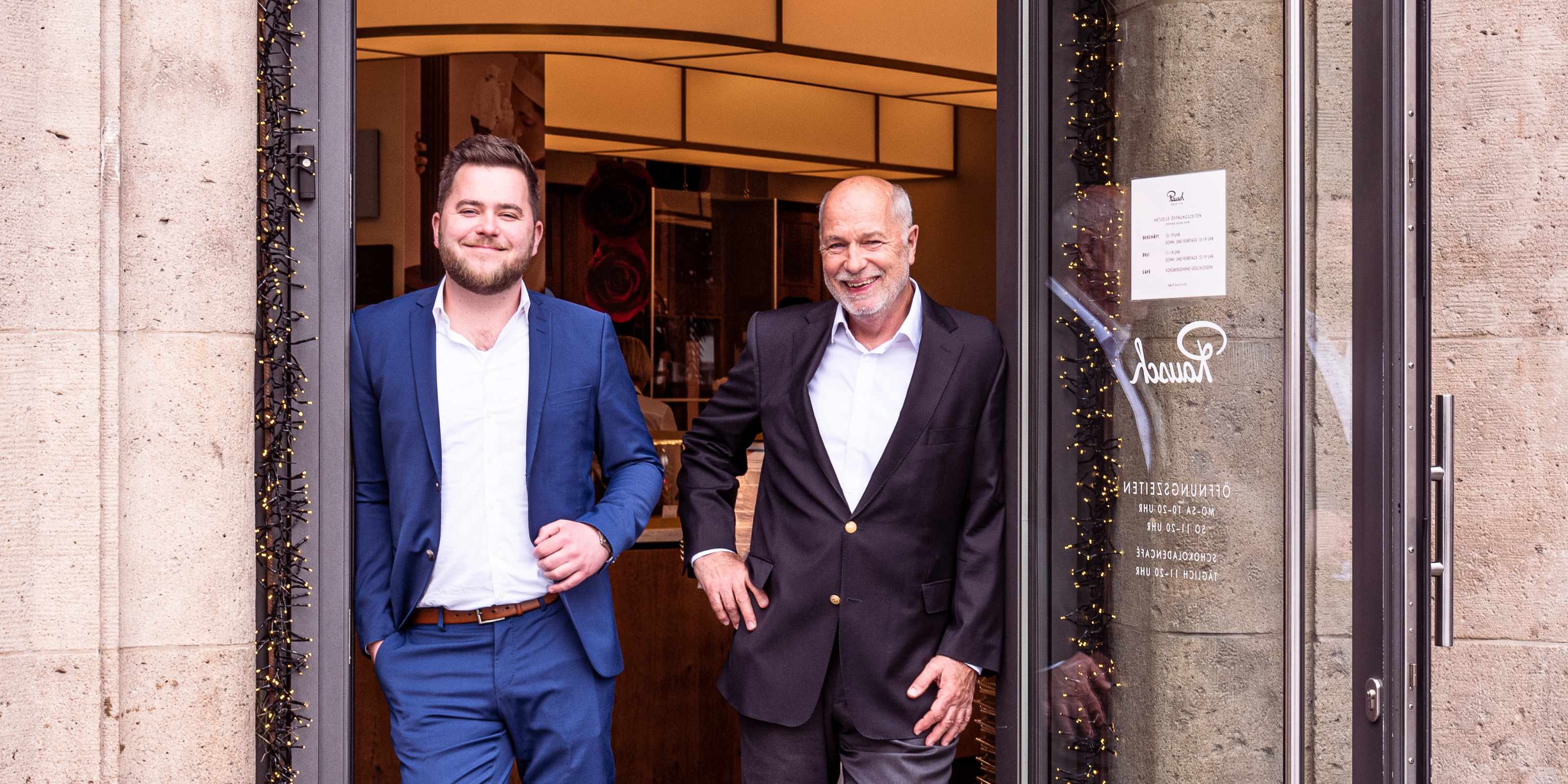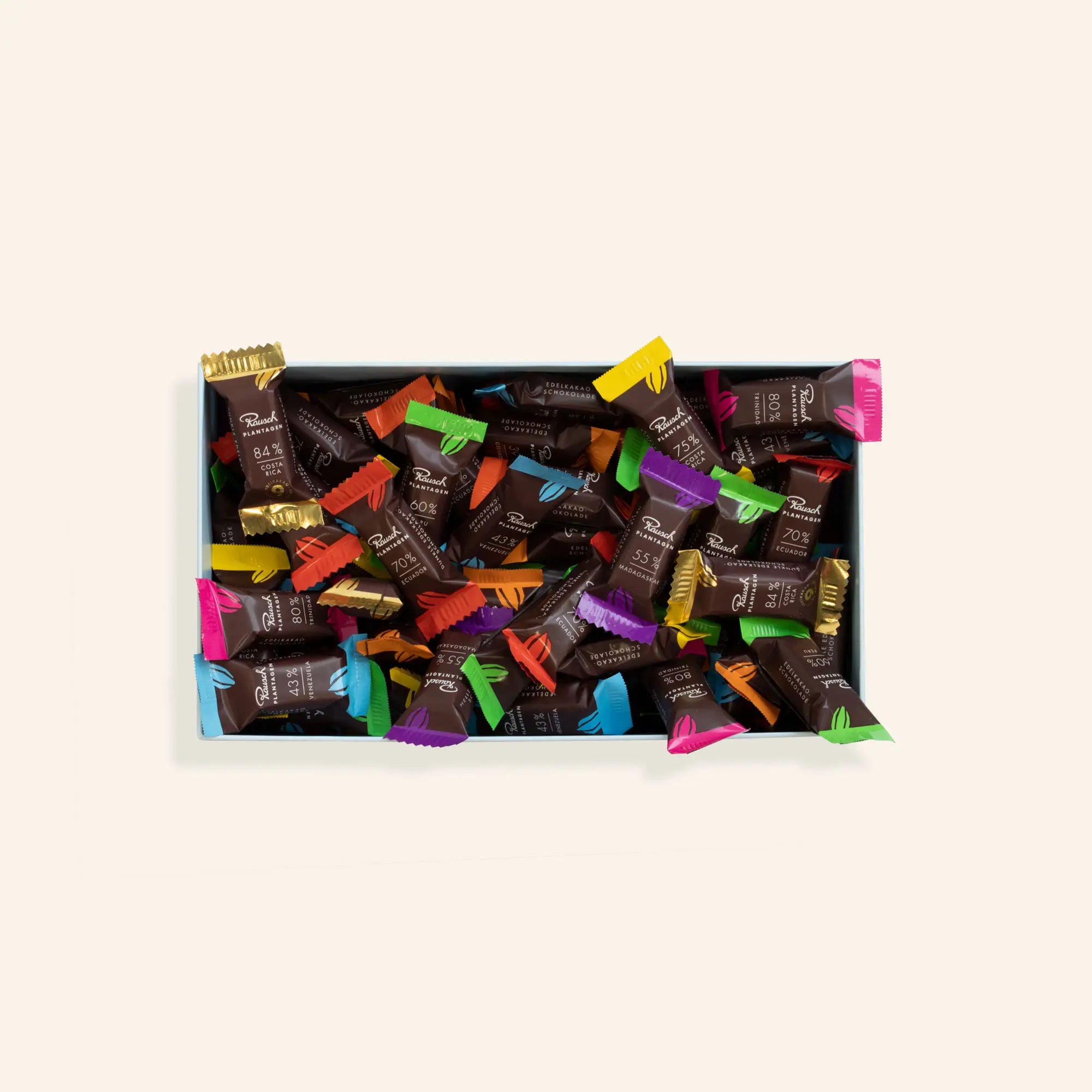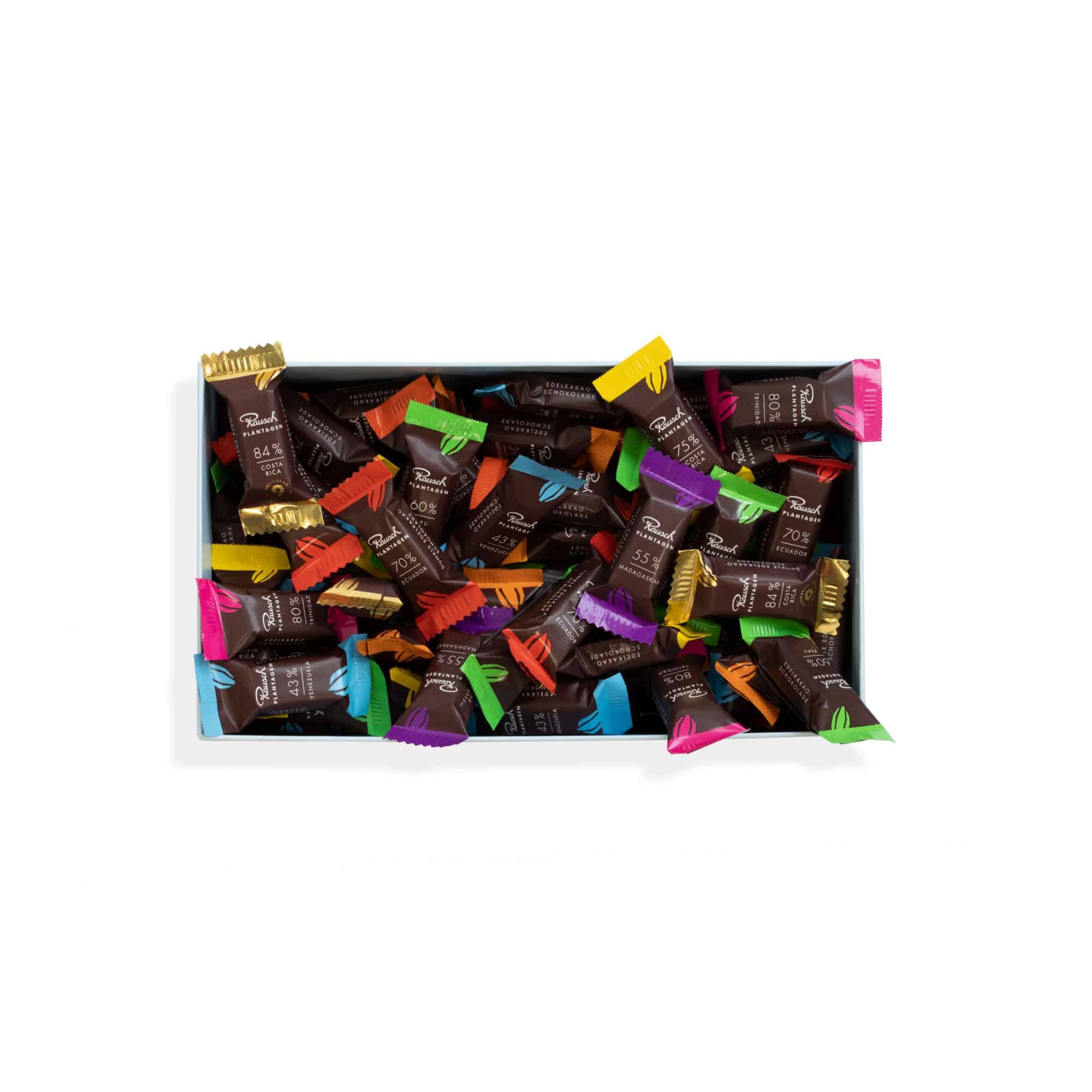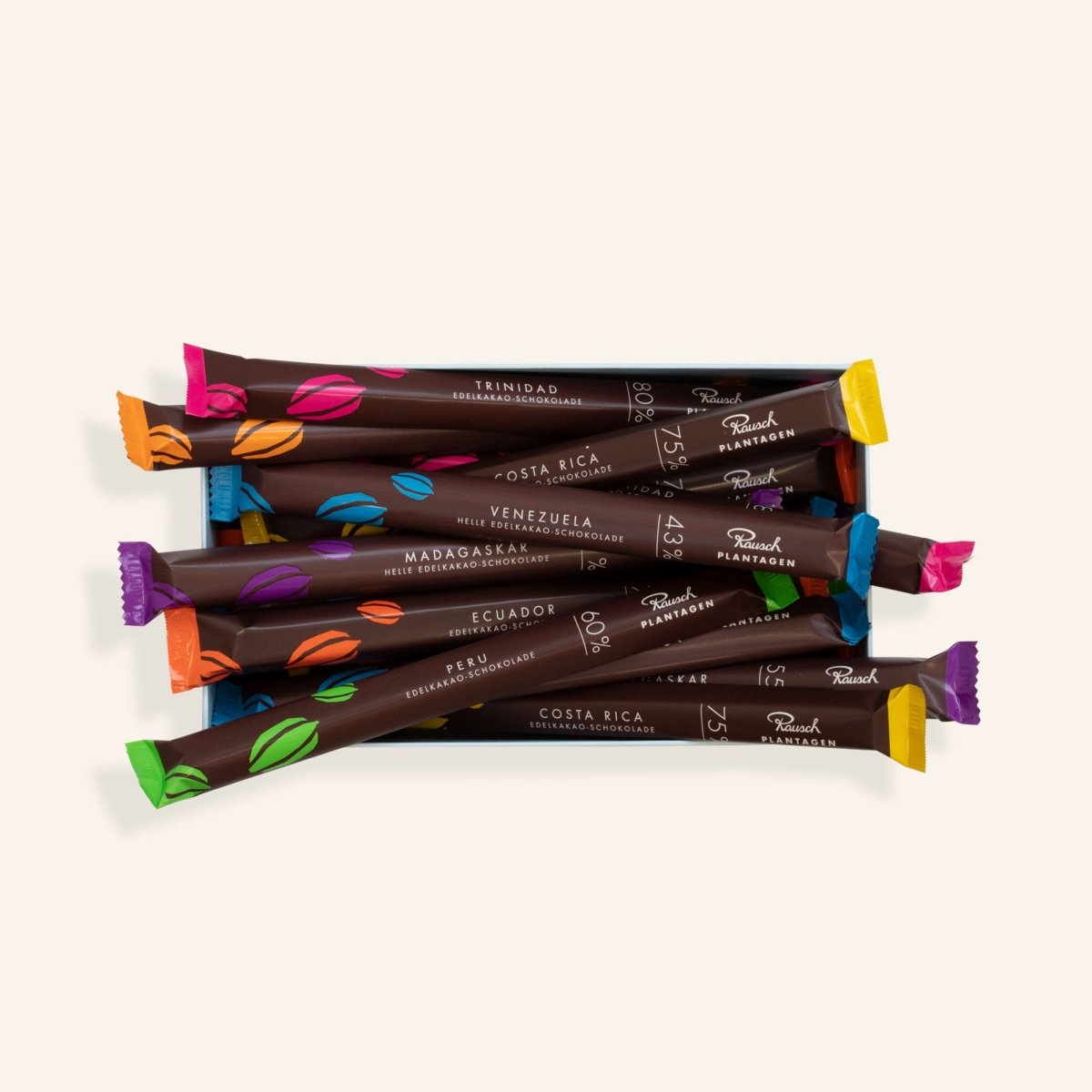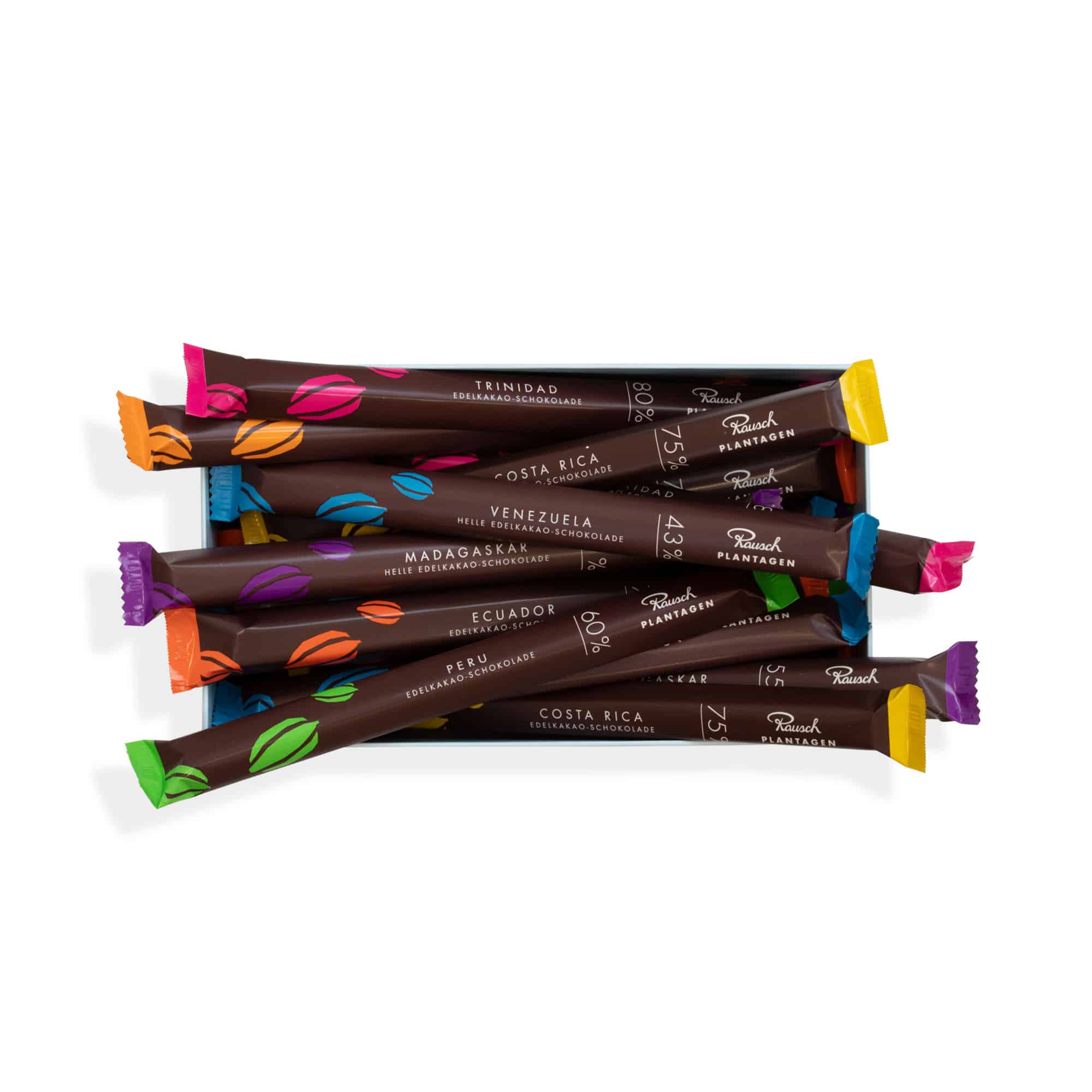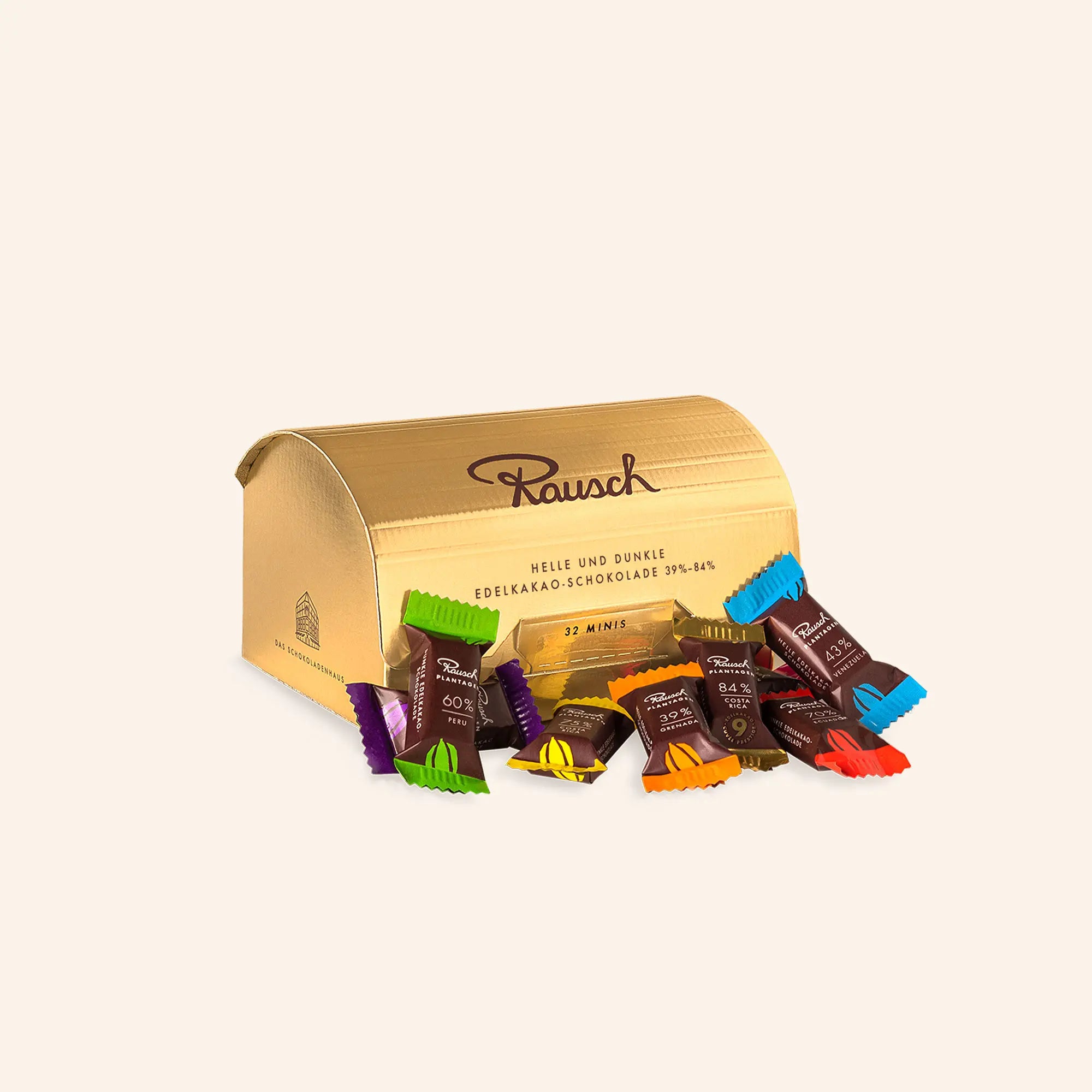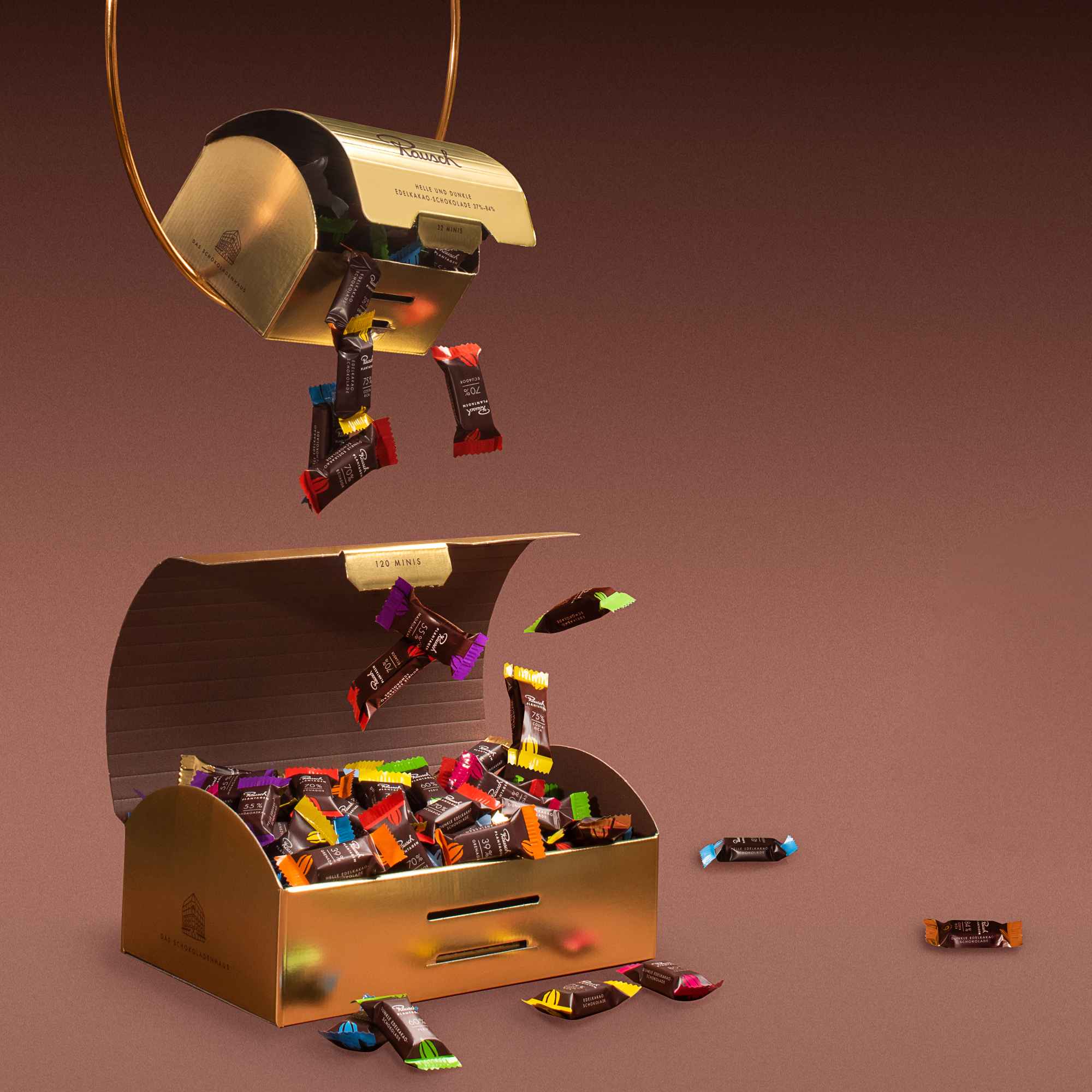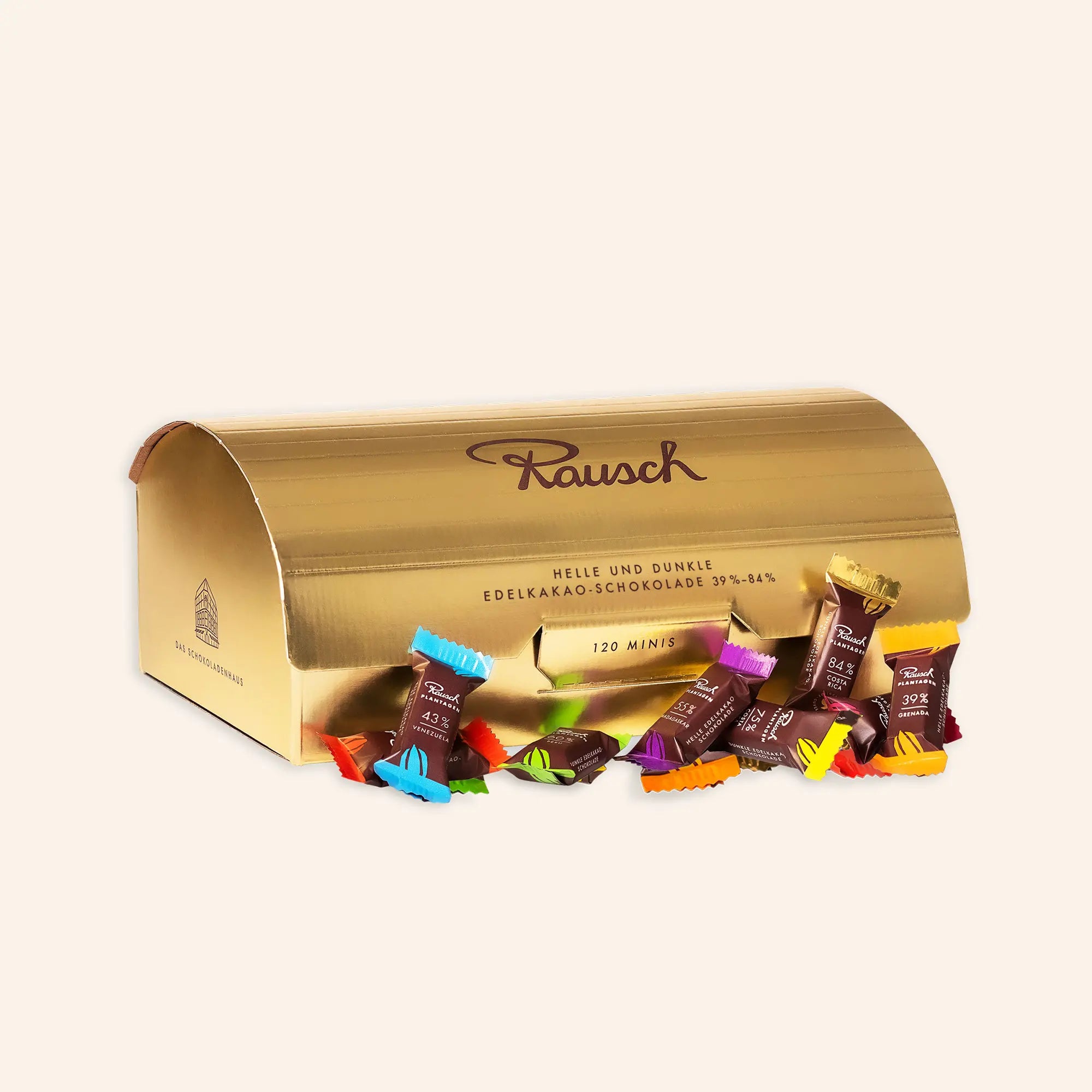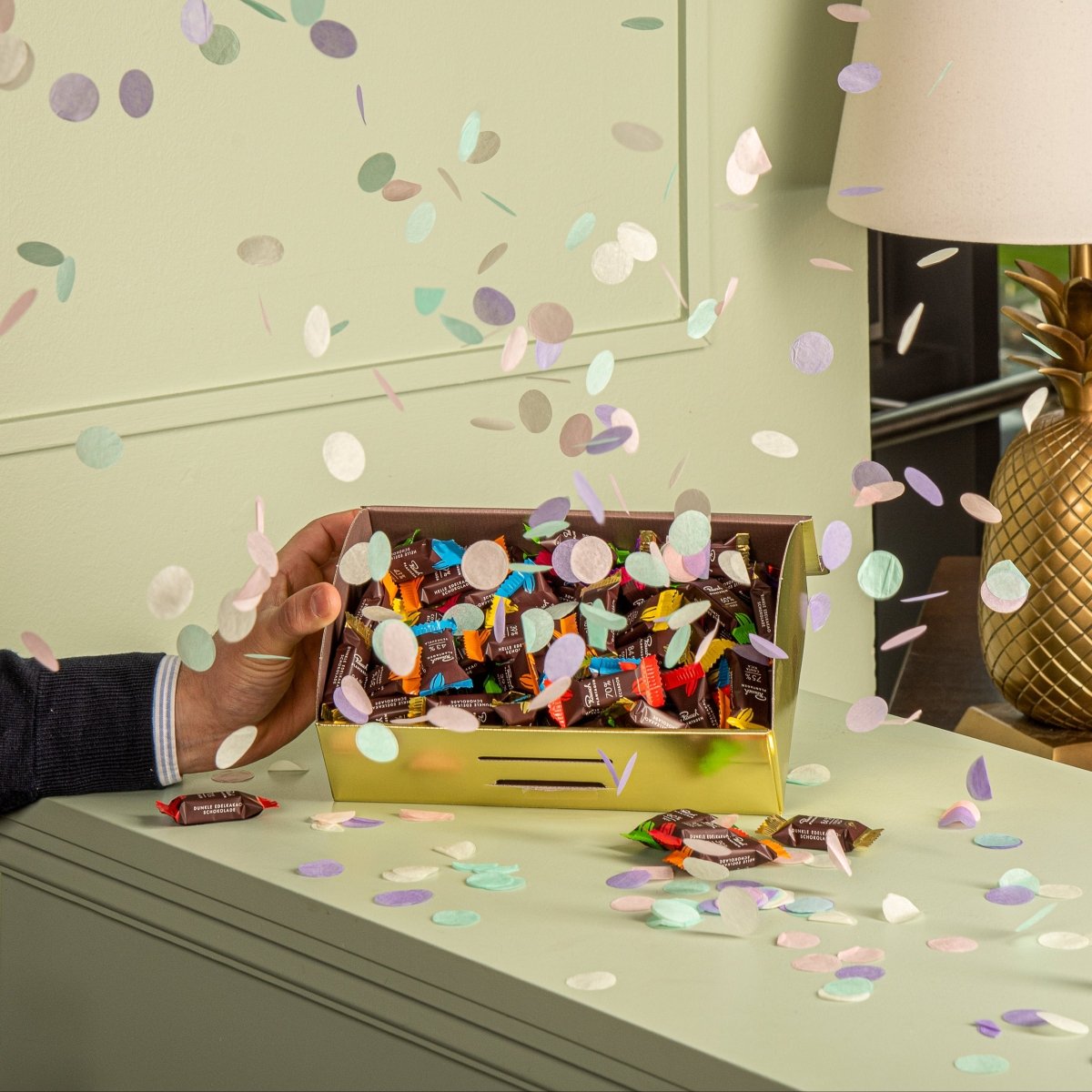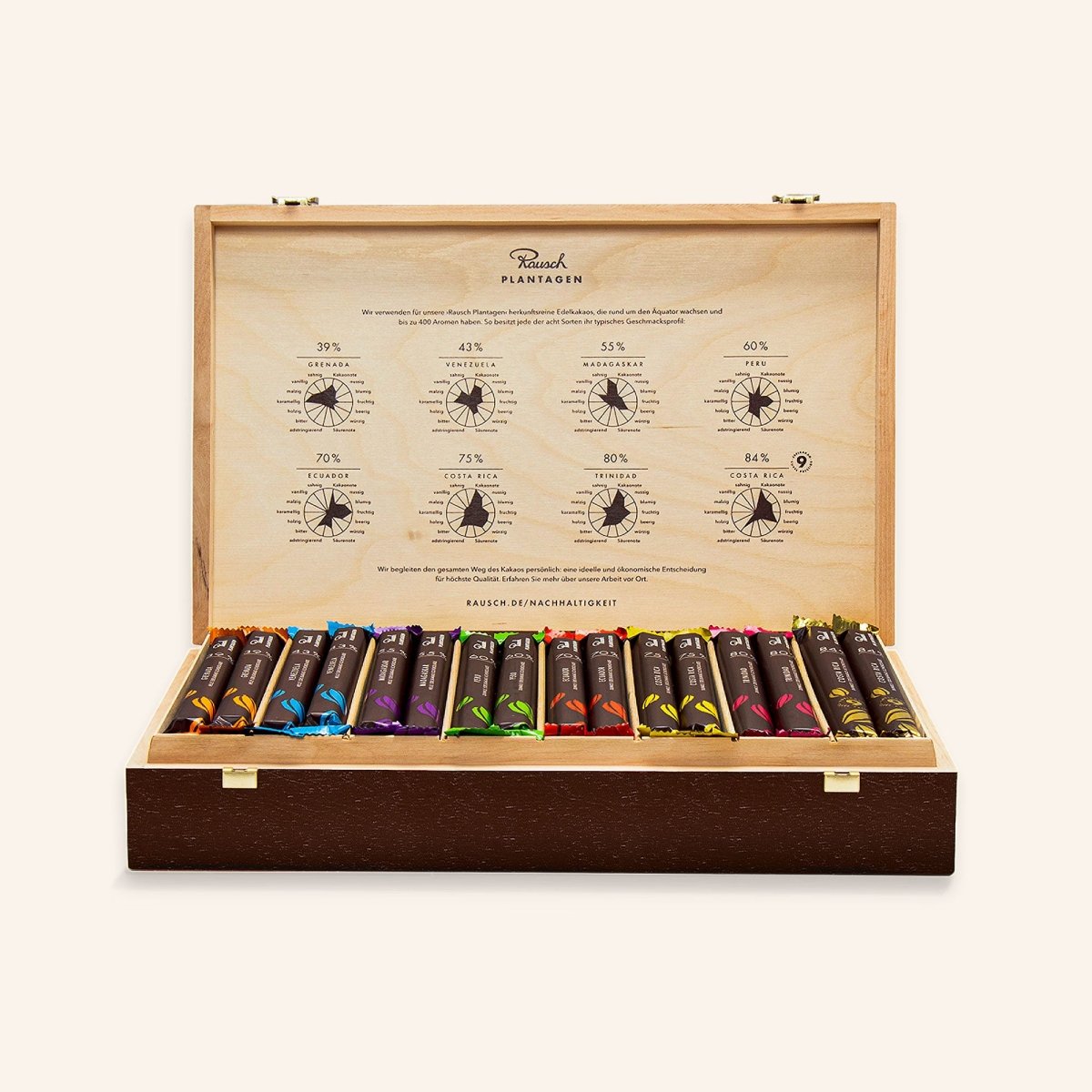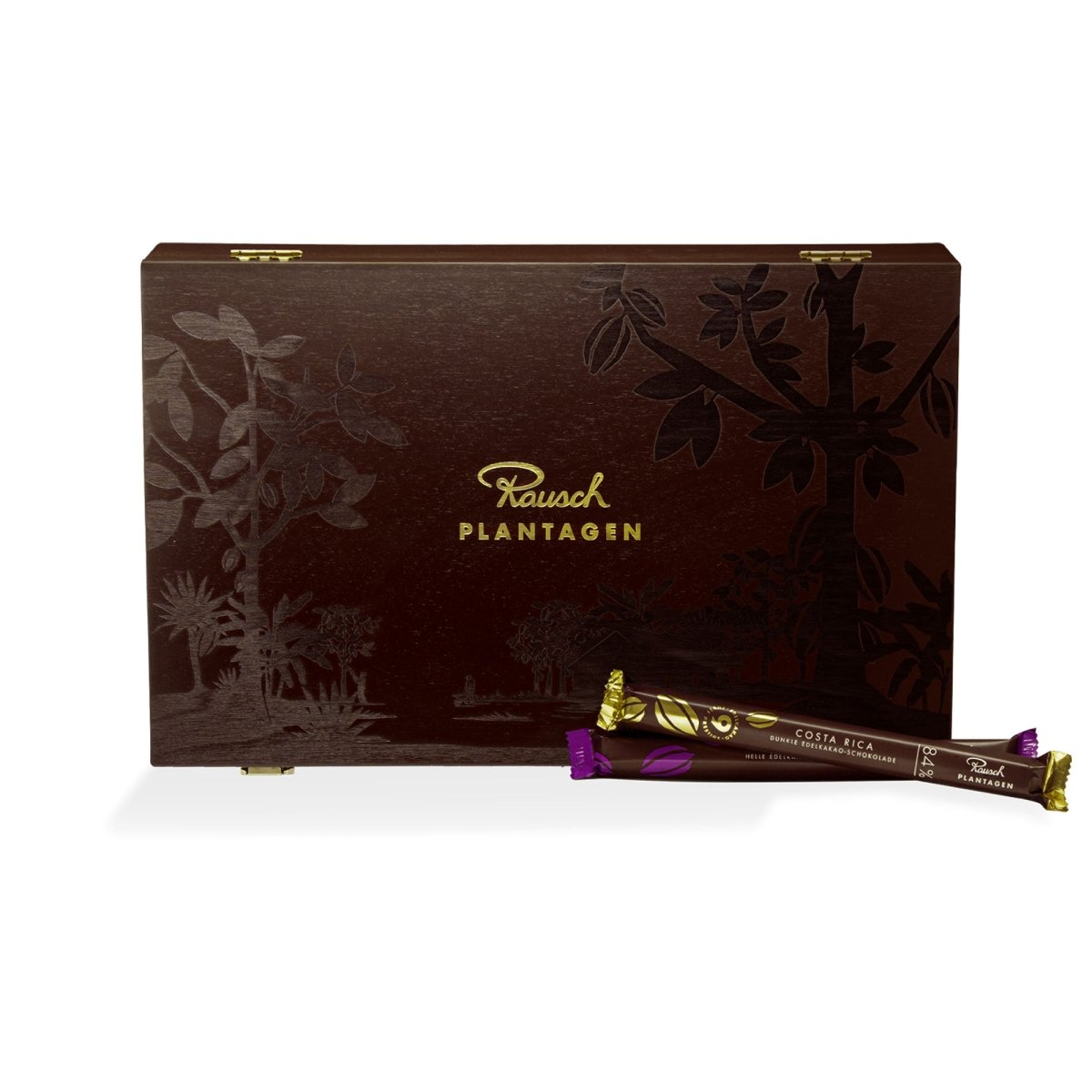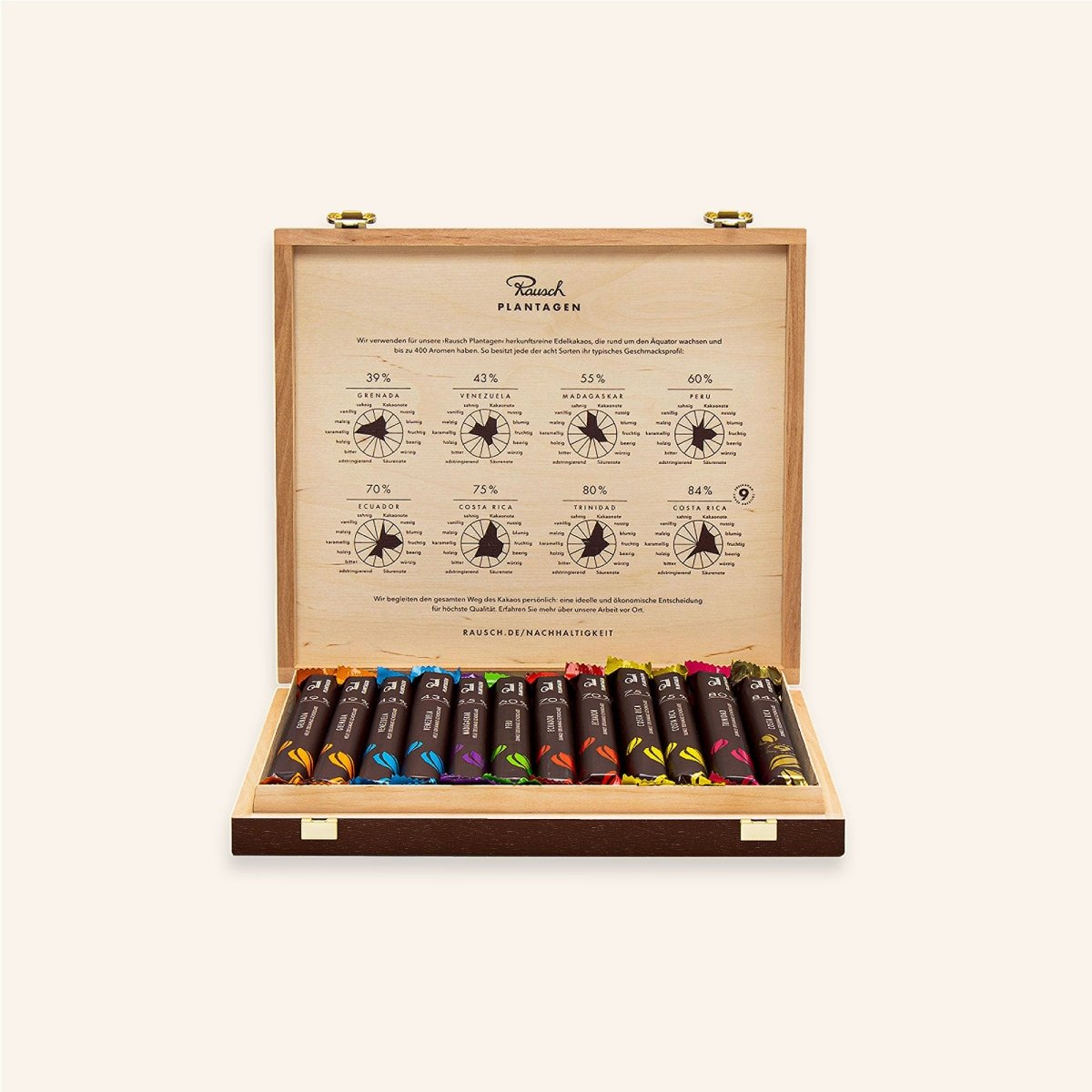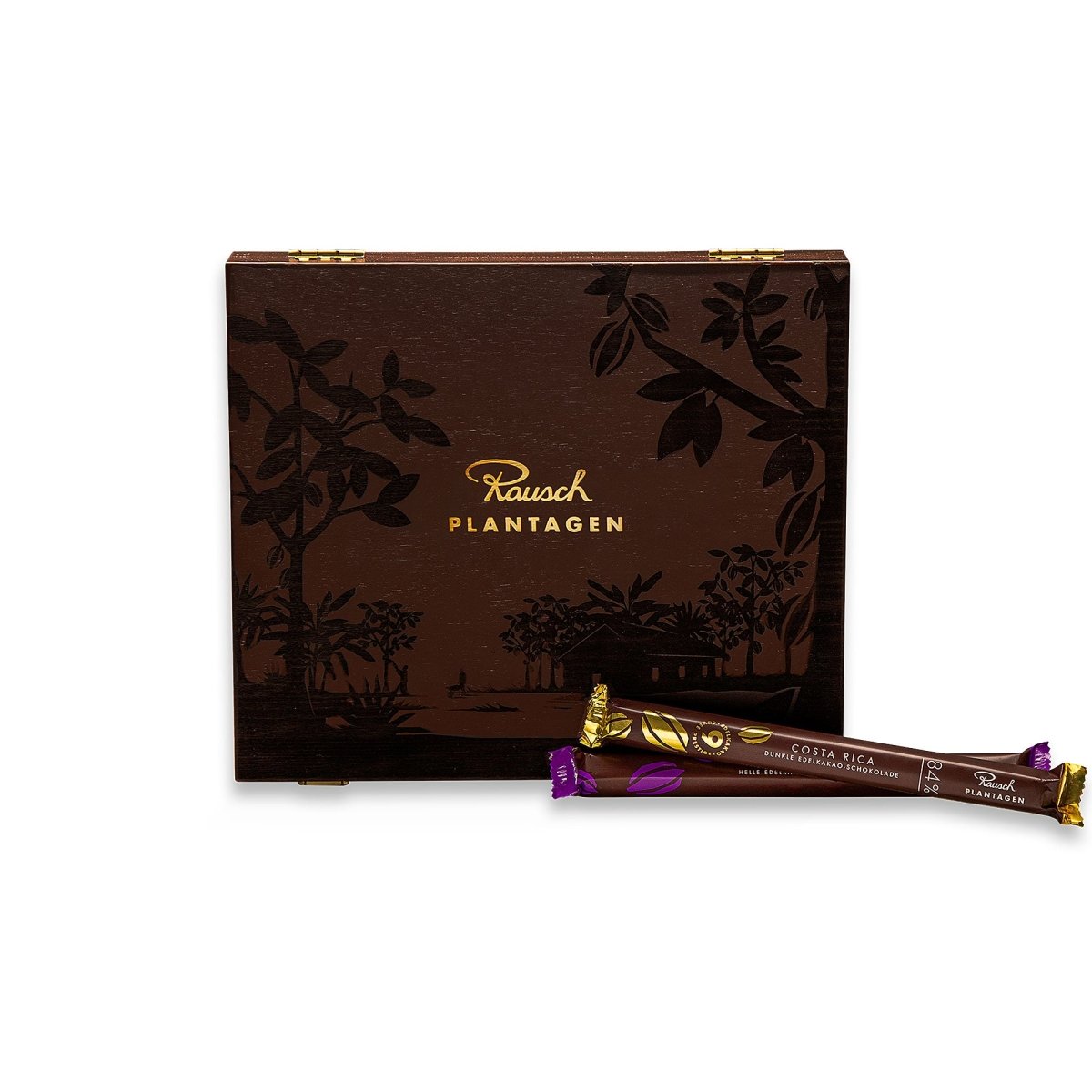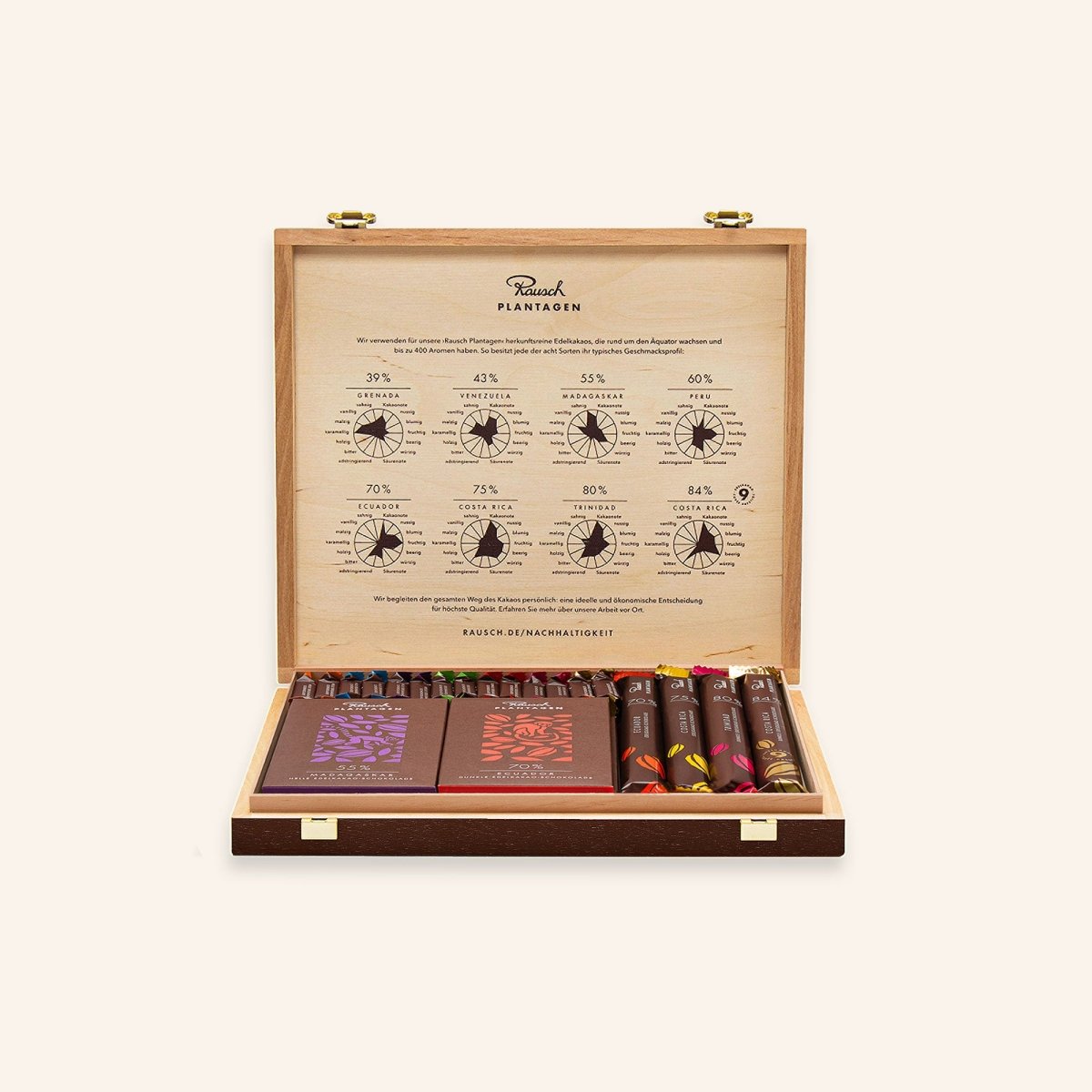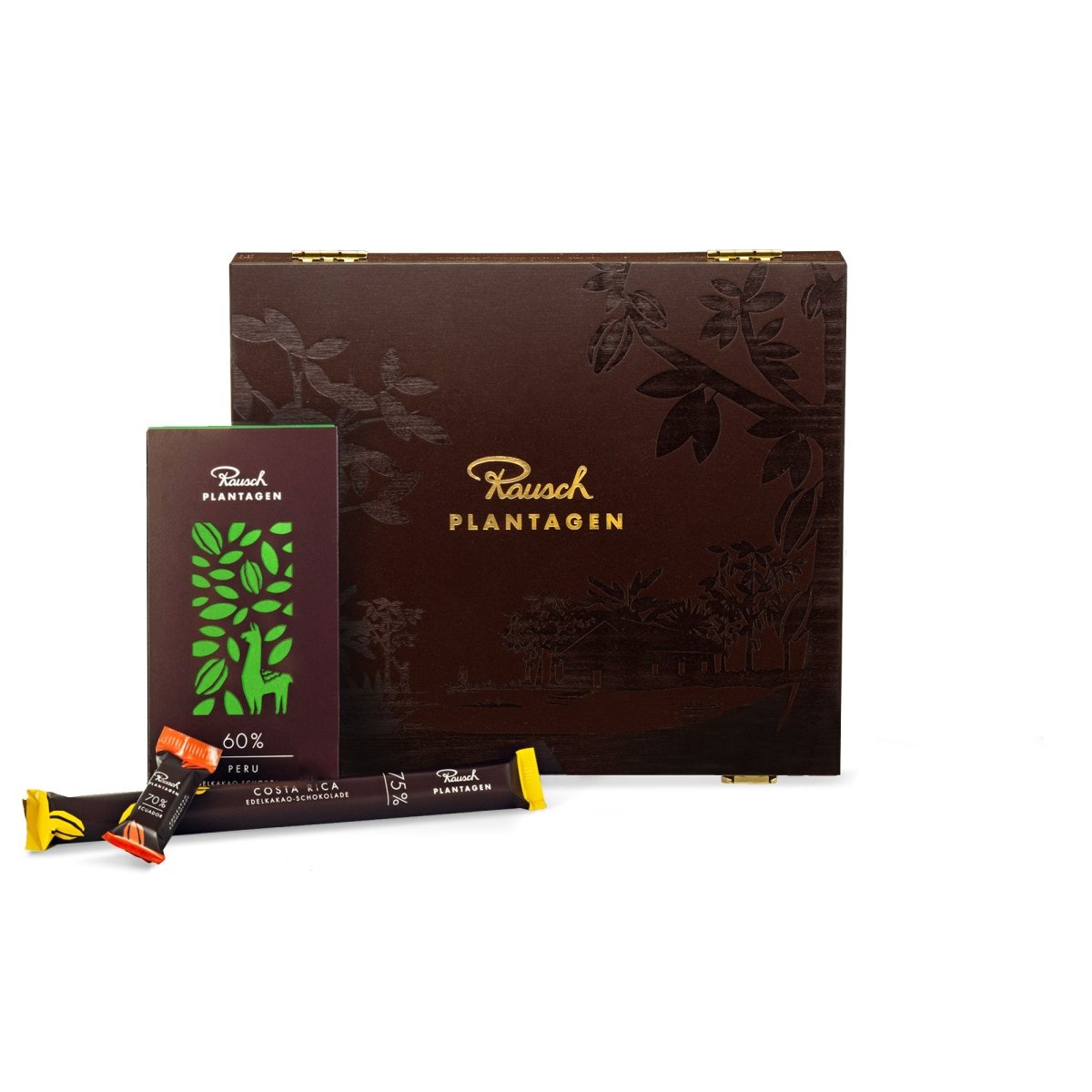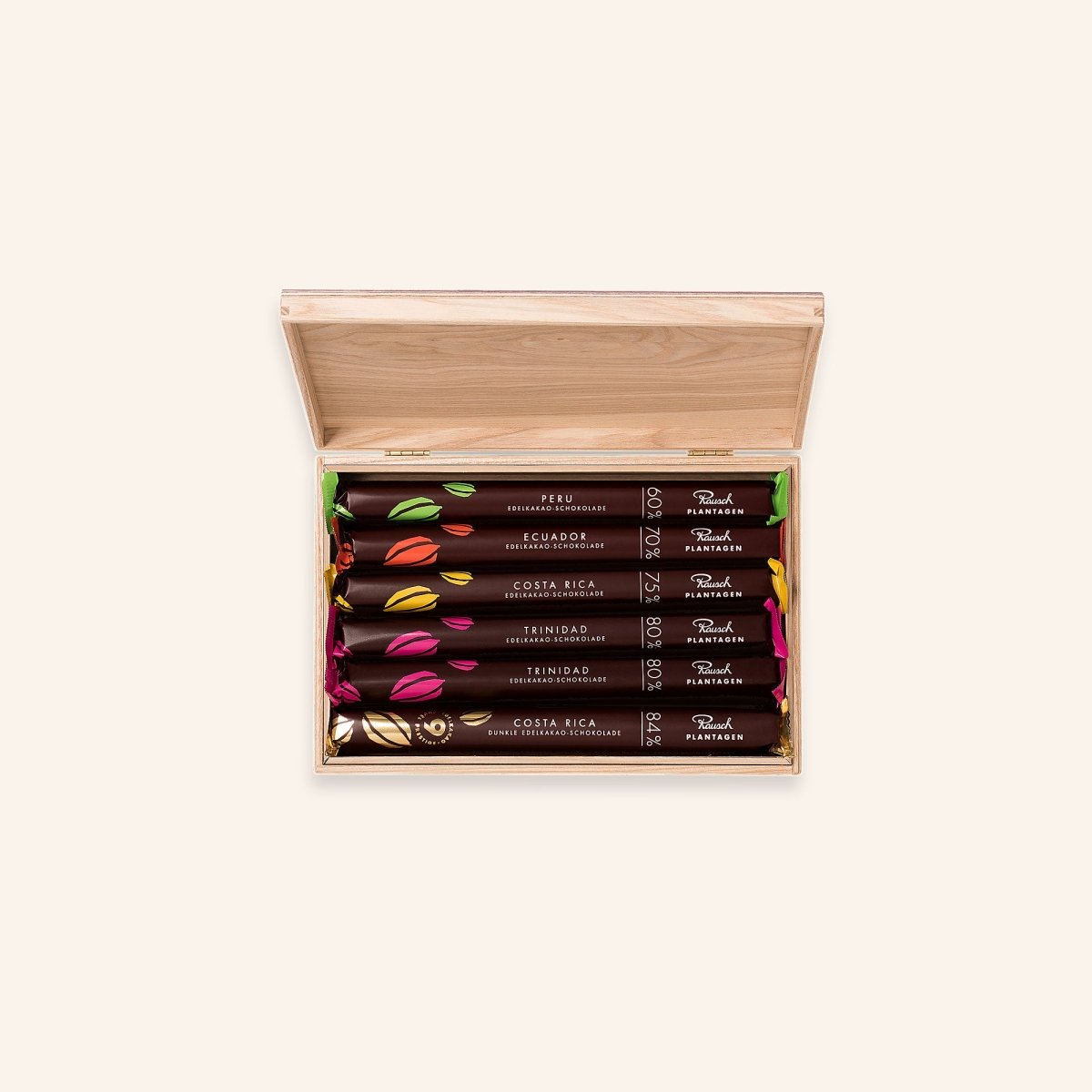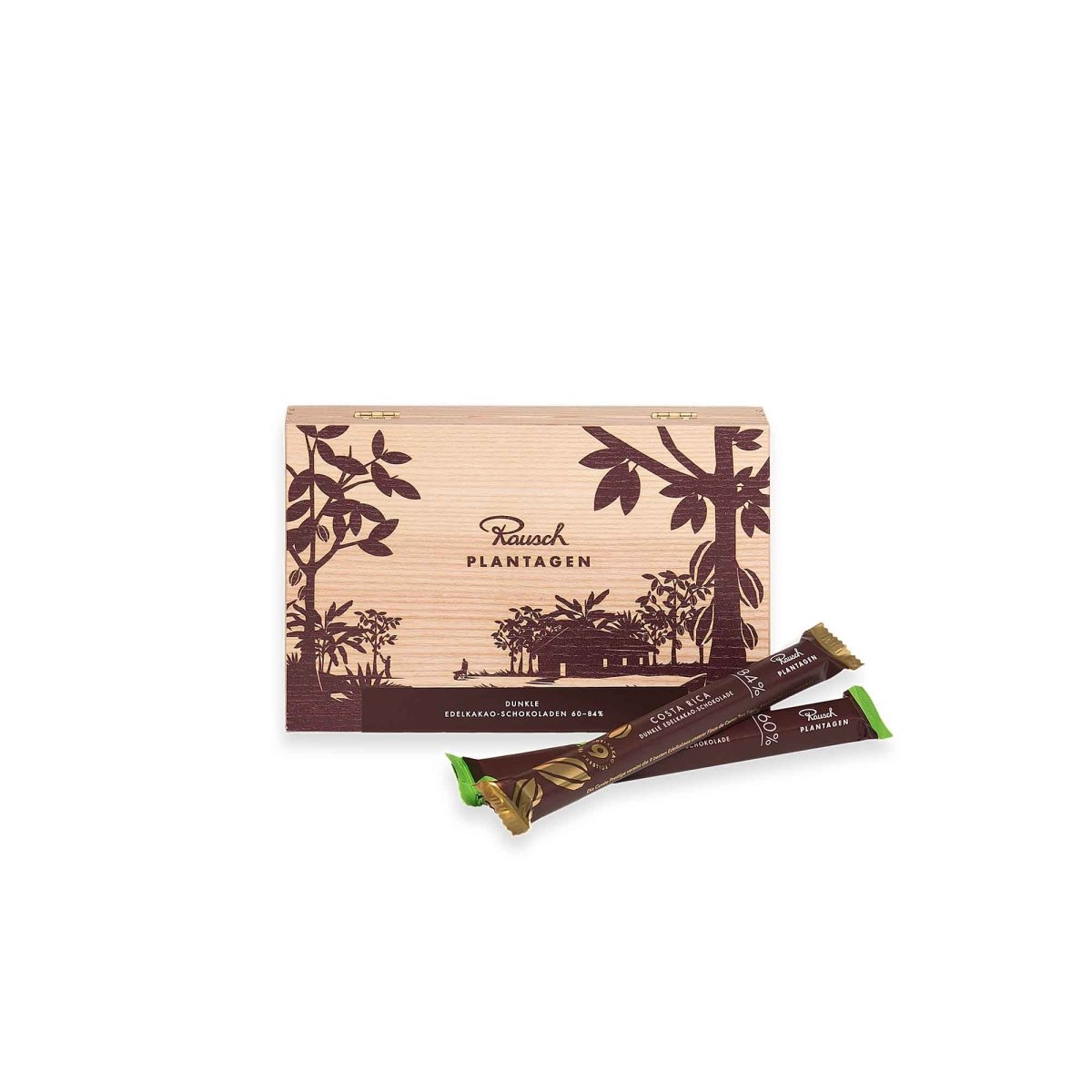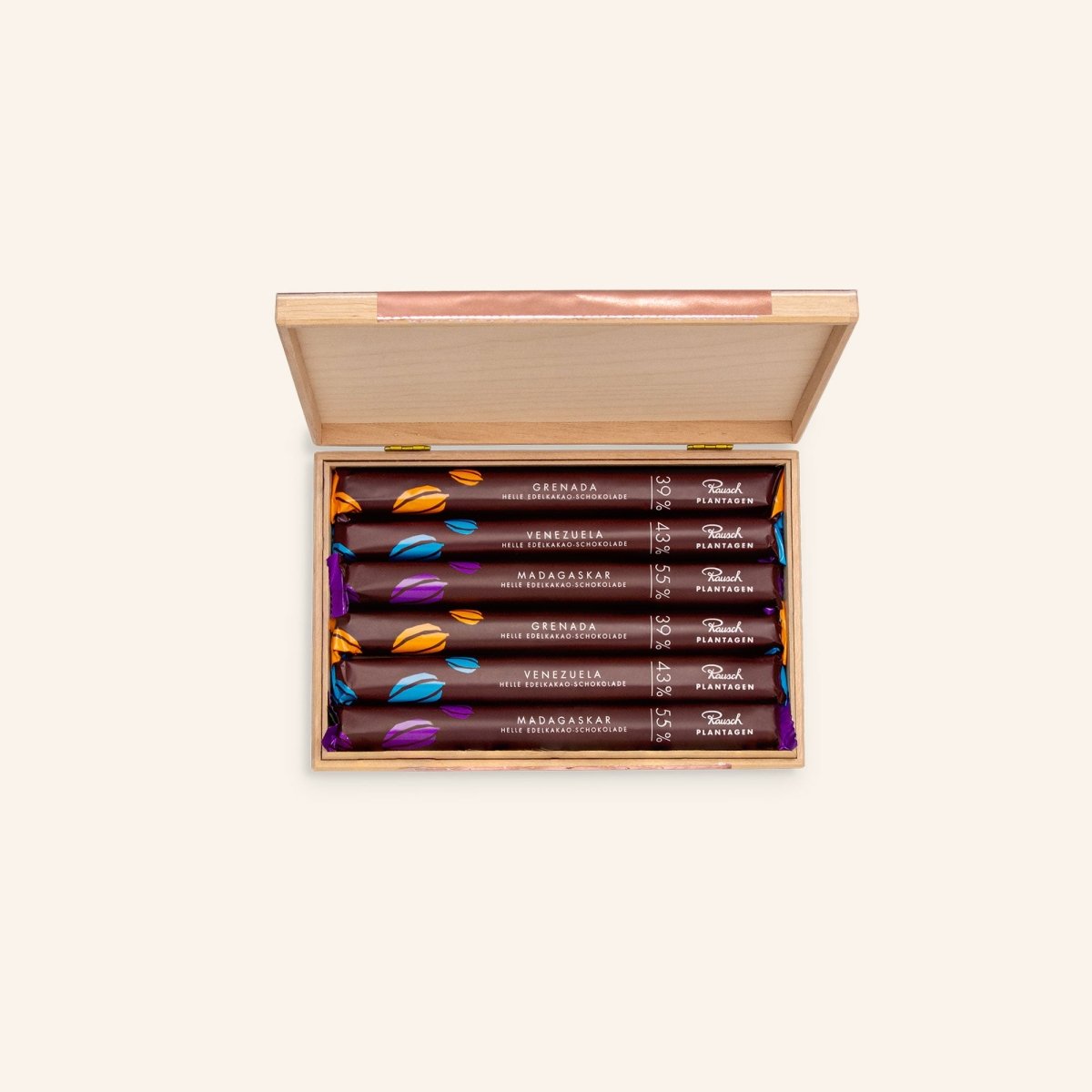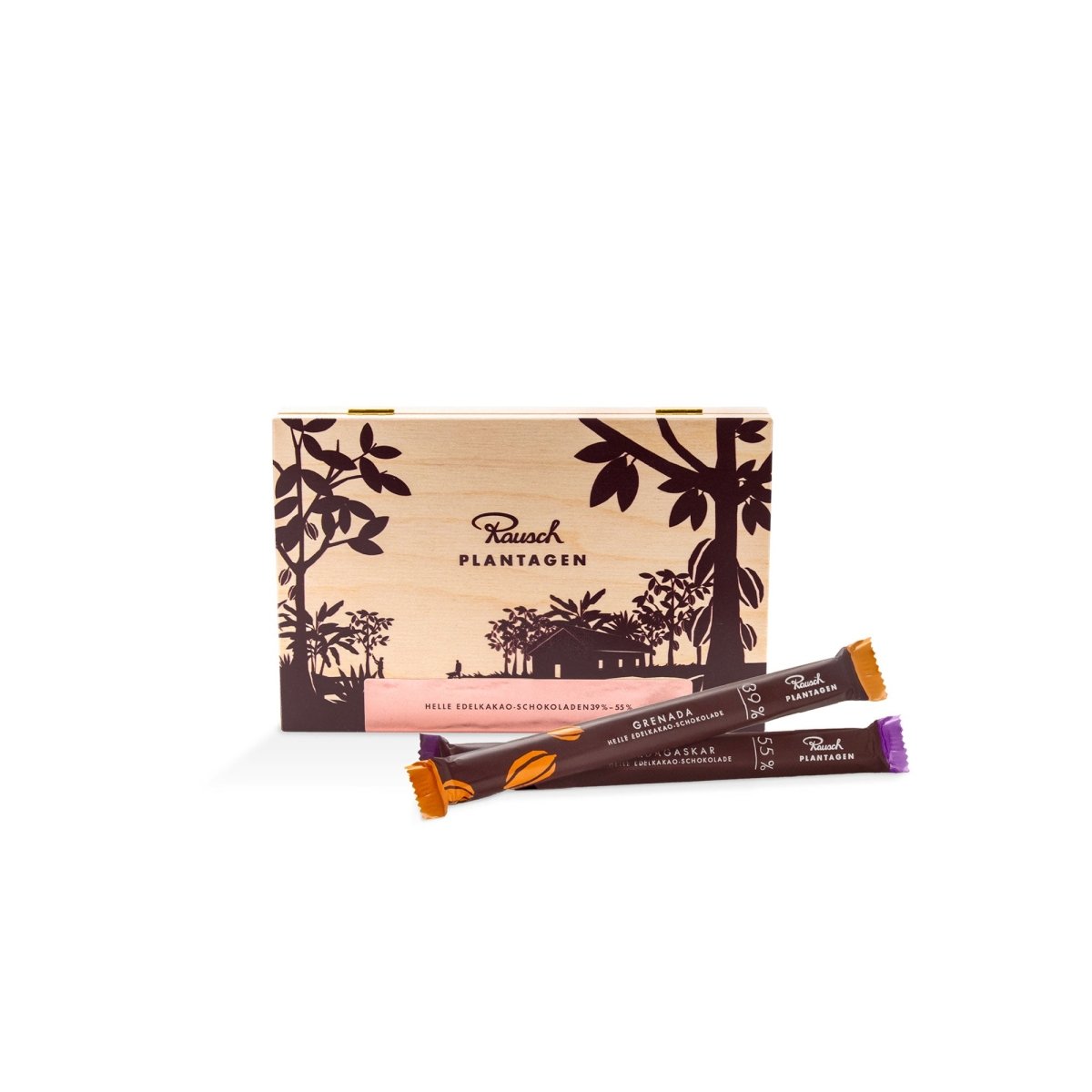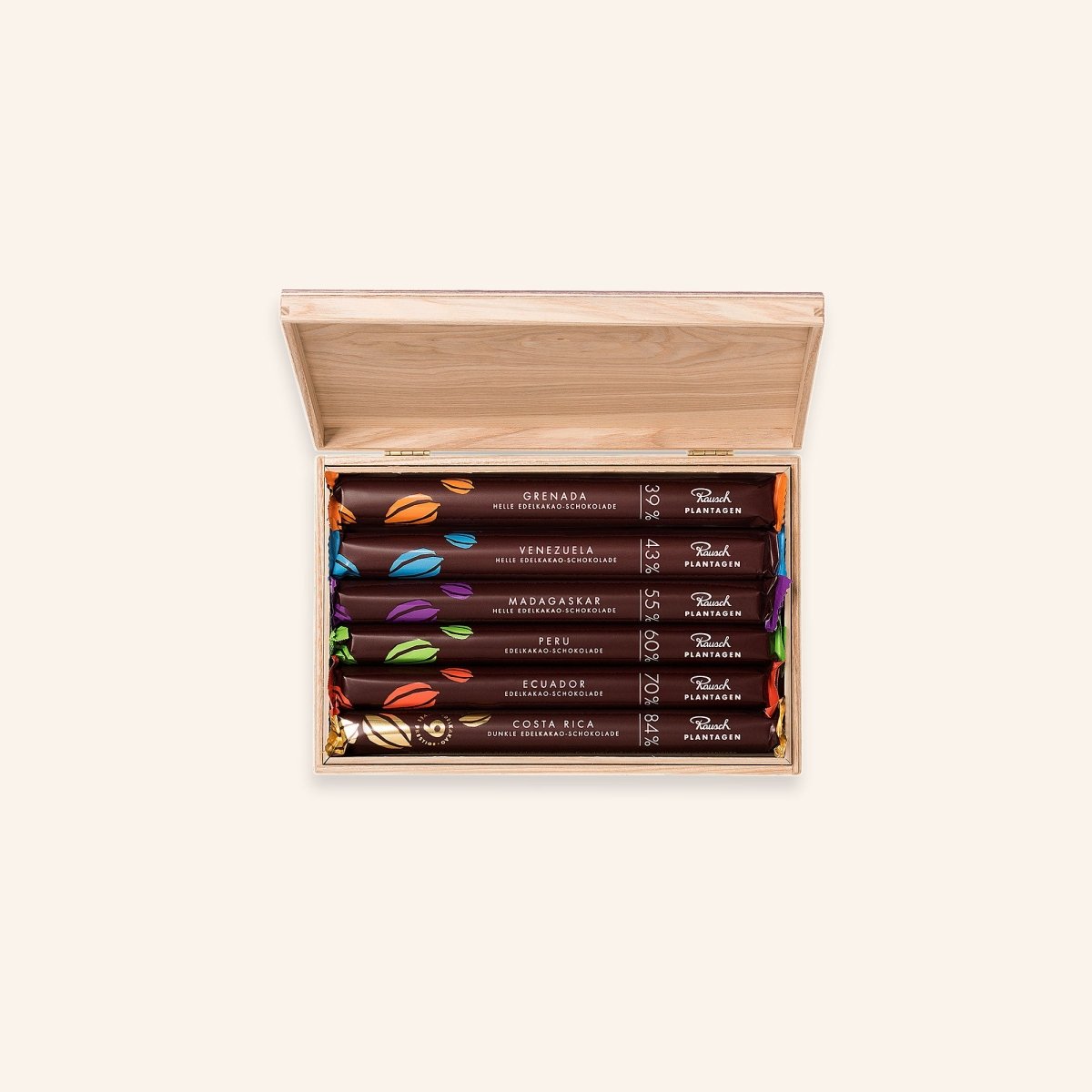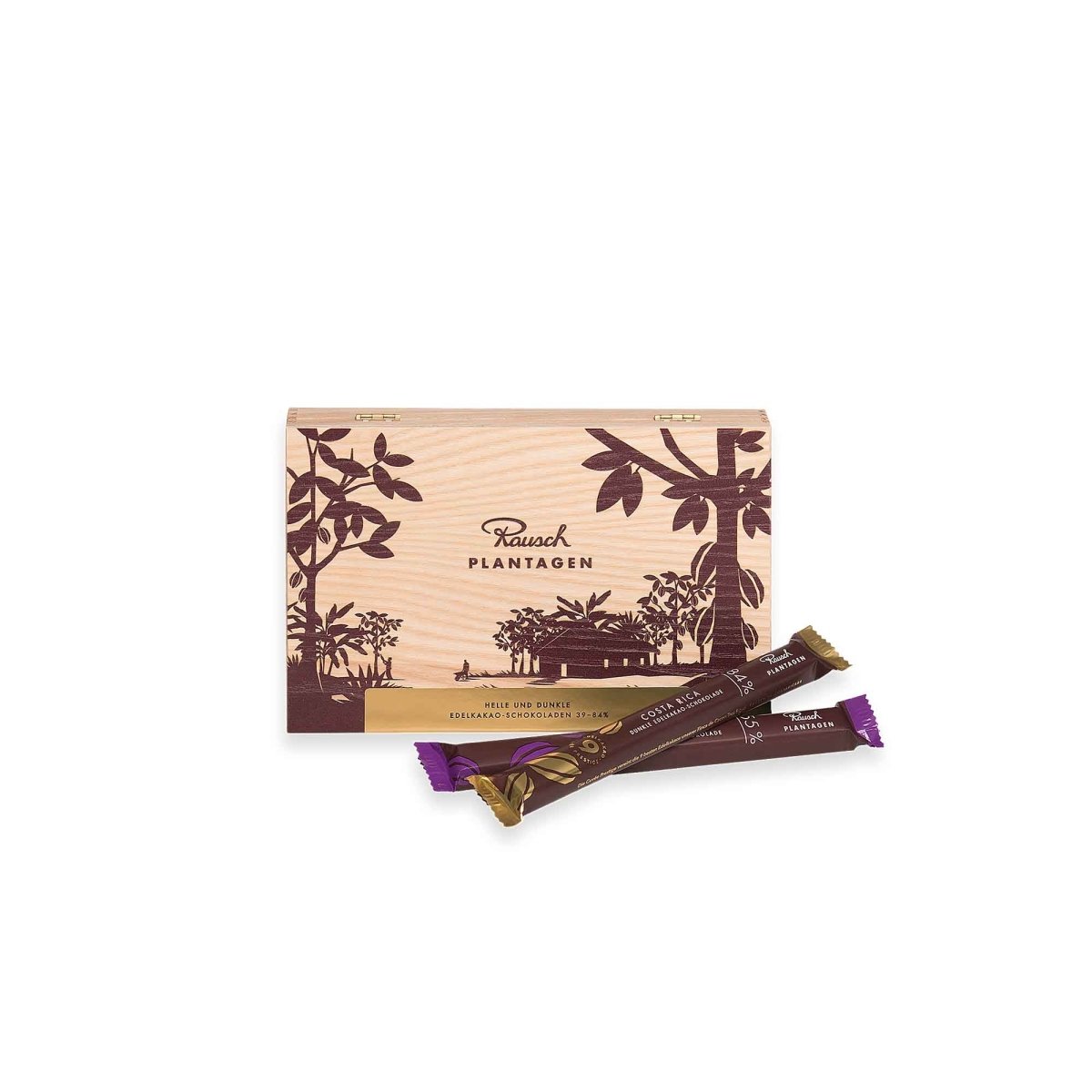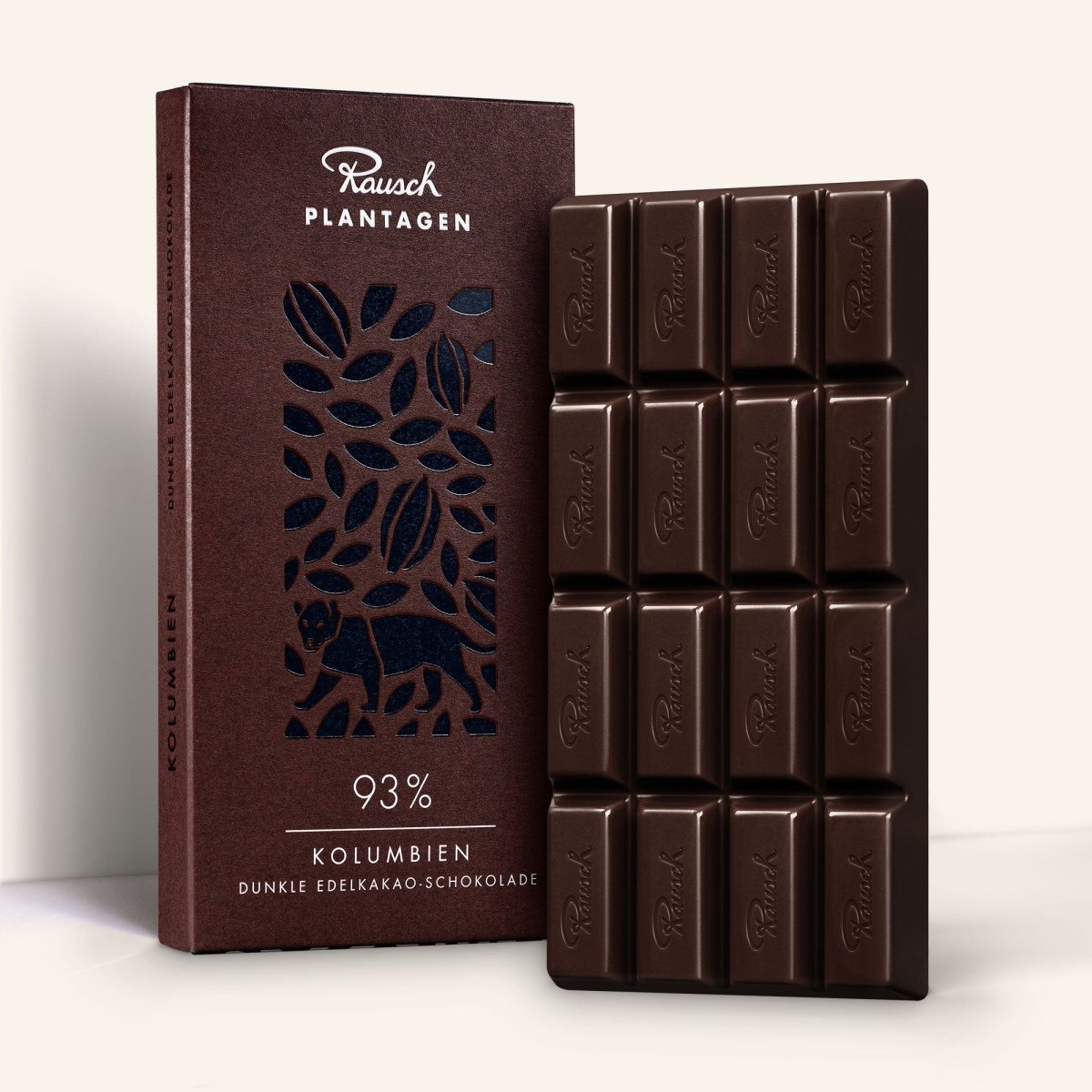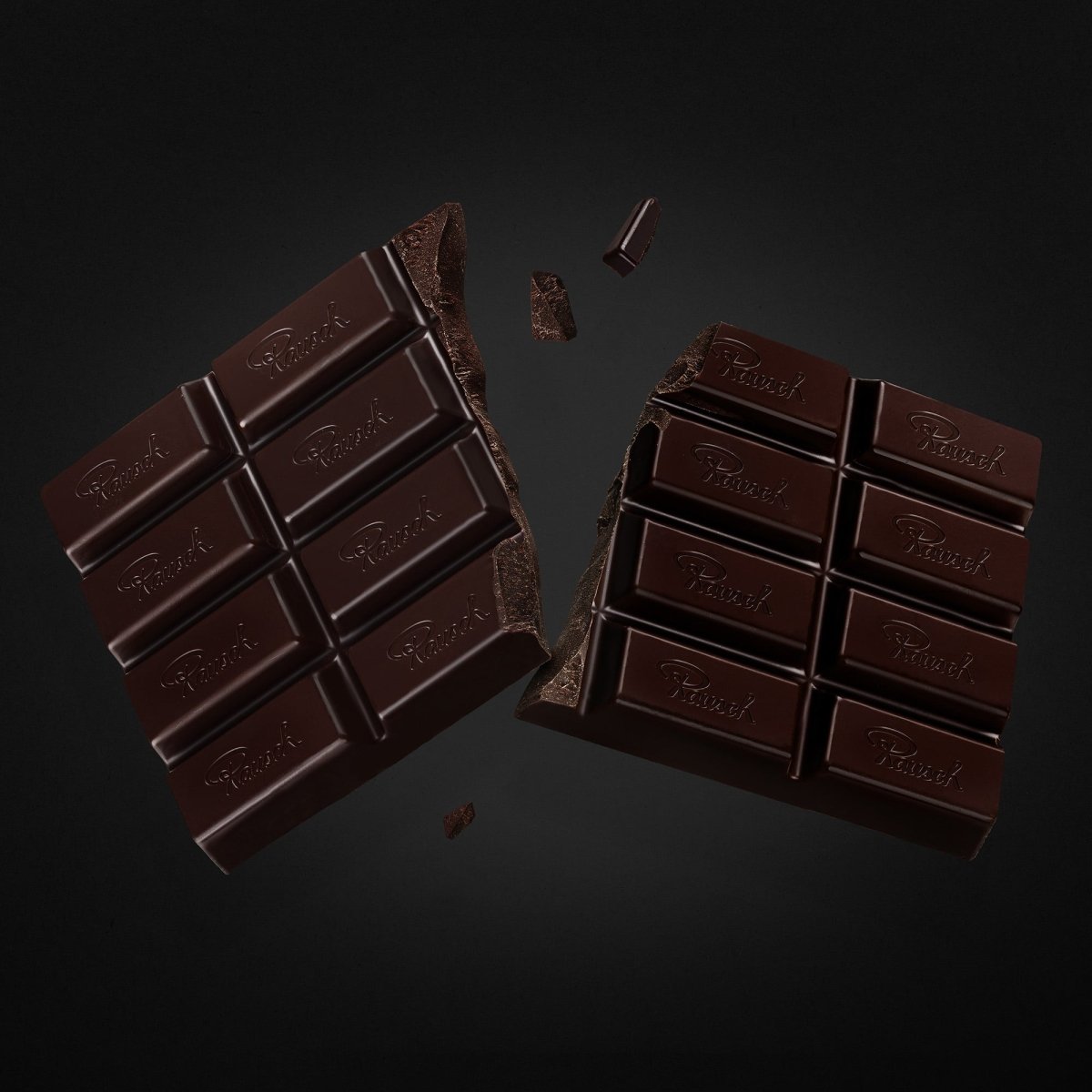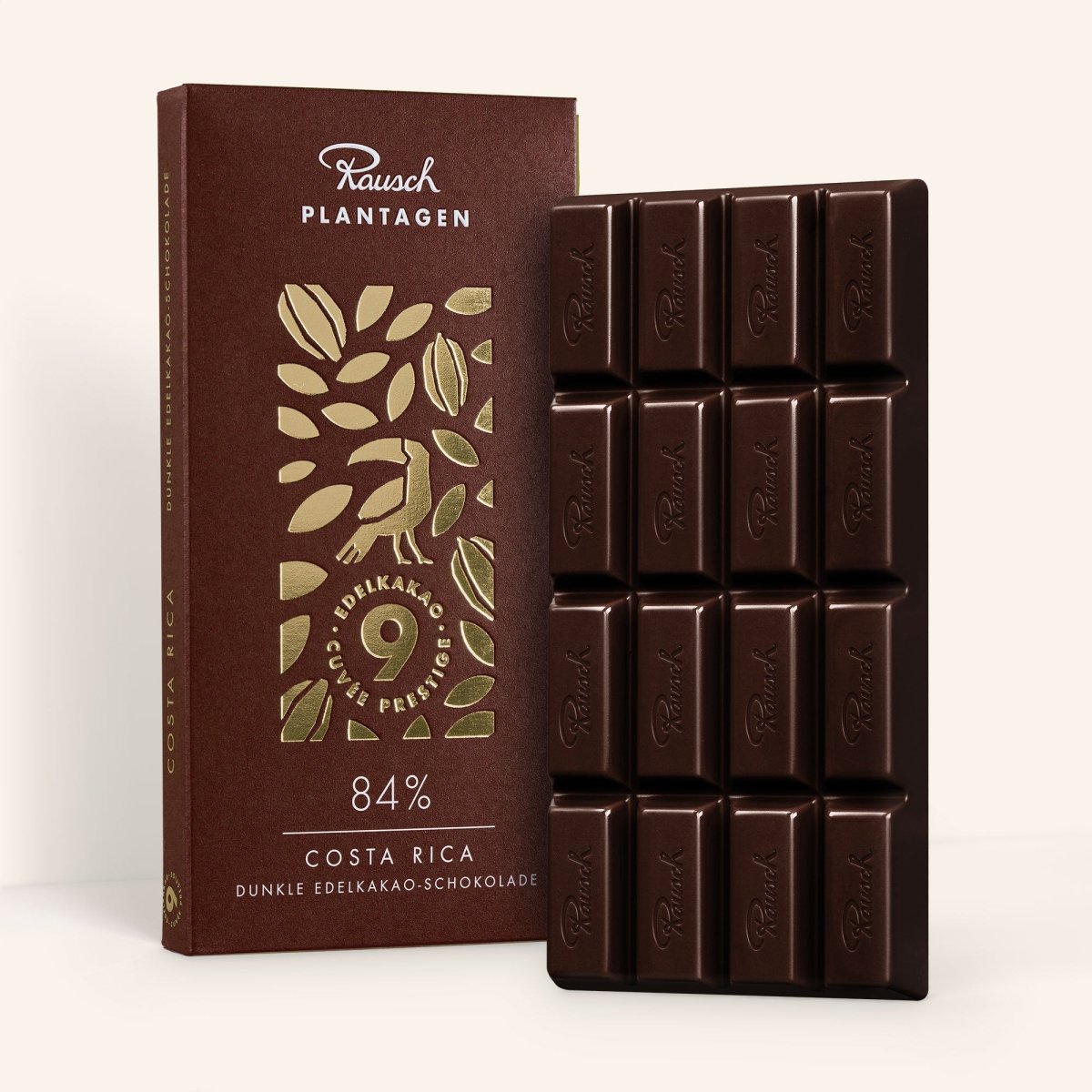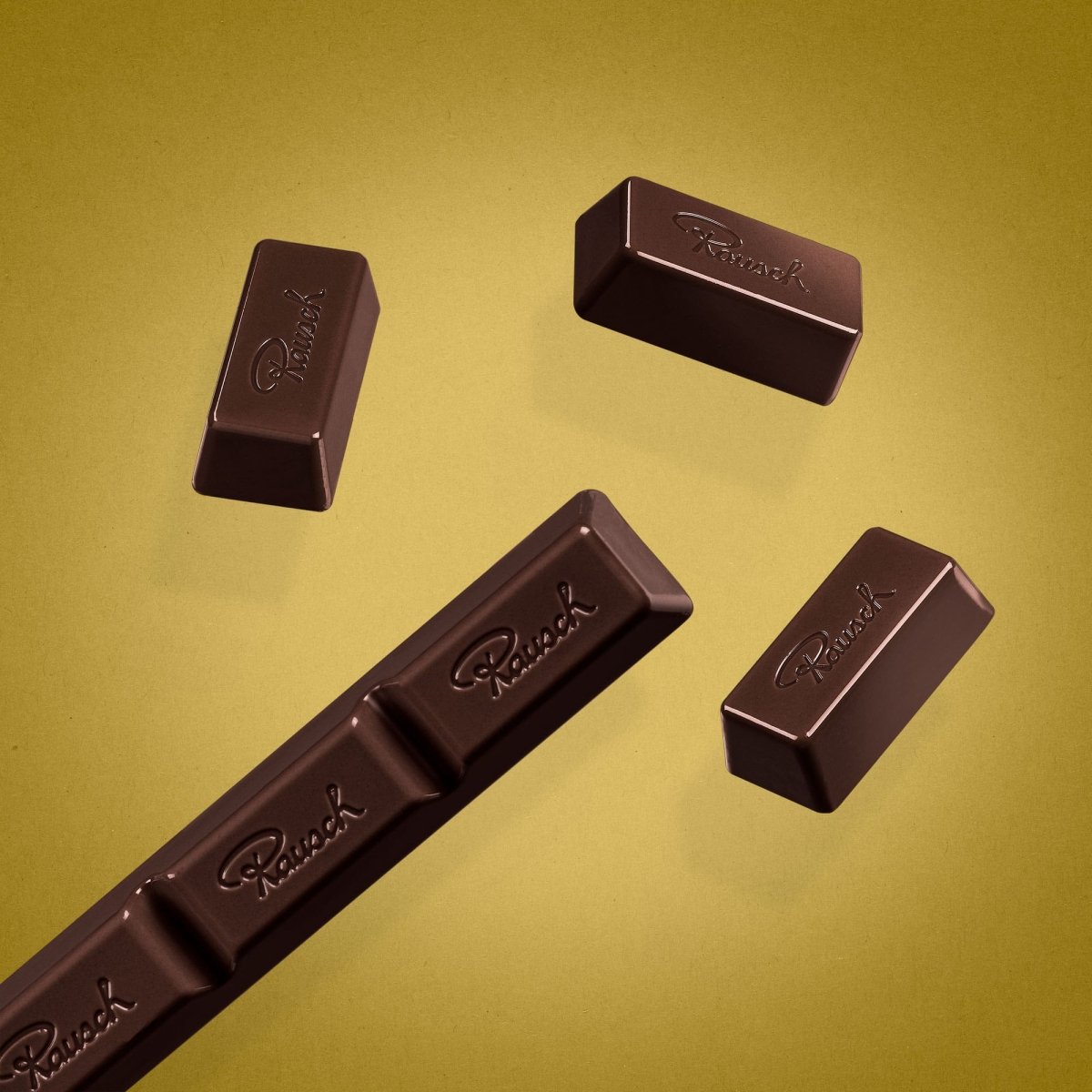The history of Rausch began in 1918 with a Berlin confectionery and developed over the decades into a manufacturer of high-quality chocolate made from fine cocoa. Quality, original recipes and family tradition characterize the company's path to this day - a piece of chocolate culture with origin and claim.

As a Berlin-based family business in its fifth generation, Rausch has been creating excellent chocolates from pure ingredients and to the highest quality standards for over a hundred years. Our company history - from the beginnings in 1918 to the present day.
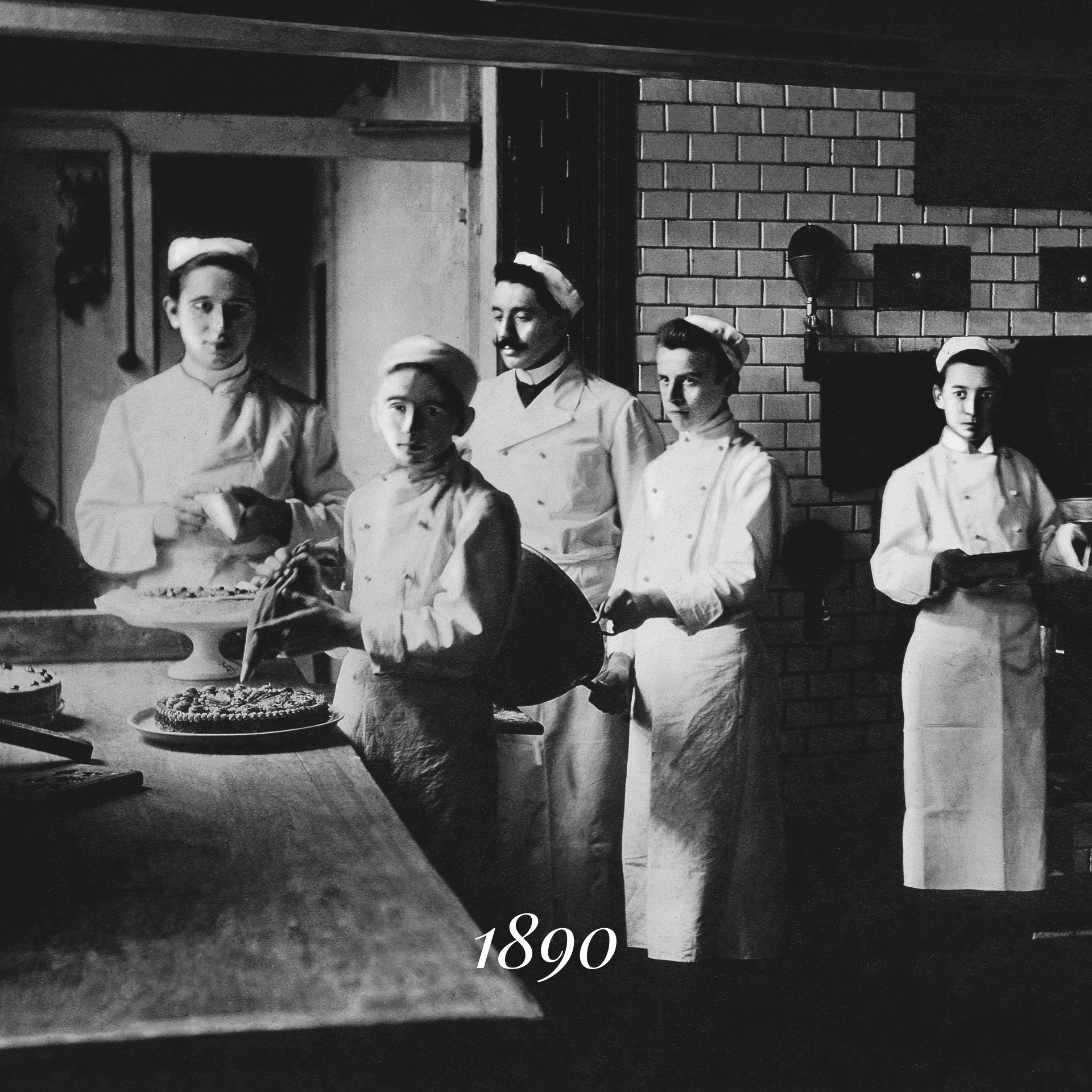
1890
Opening of the first confectionery by Wilhelm Rausch Senior
In 1890, Wilhelm Rausch Senior opens the first family business - a confectionery where he offers chocolates, truffles and pralines. Two years later, in 1892, his son Wilhelm Rausch Junior was born. In 1912, he learned the art of making chocolates and became a master confectioner in a Berlin court confectionery, where chocolates were made in the traditional way.
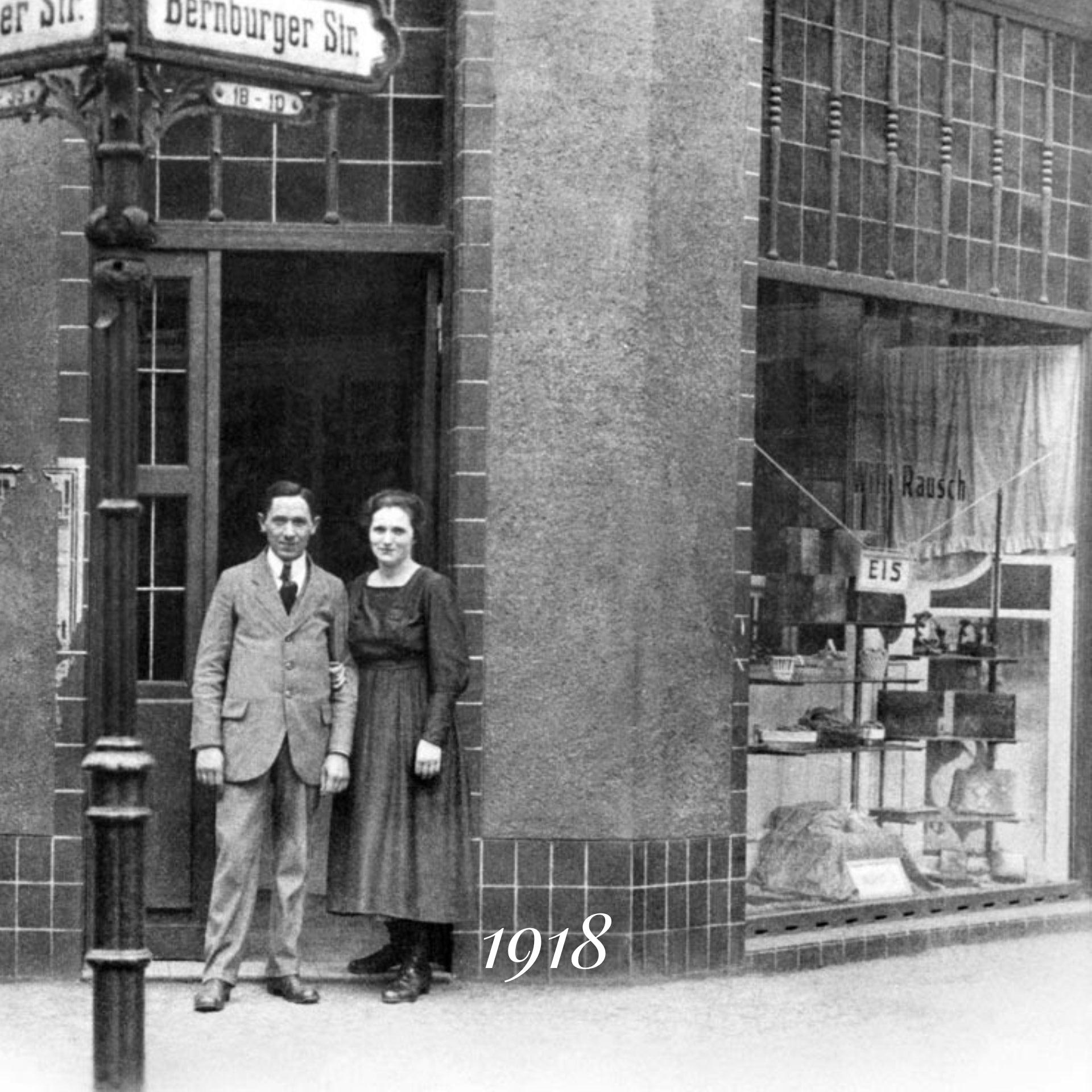
1918
Foundation of the Rausch private confectionery by Wilhelm Rausch Junior
2nd generation
In 1918, Wilhelm Rausch Junior founds the Wilhelm Rausch company in Berlin - producing the finest pralines, chocolates and honey cakes.
He runs seven of his own confectionery stores in Berlin.
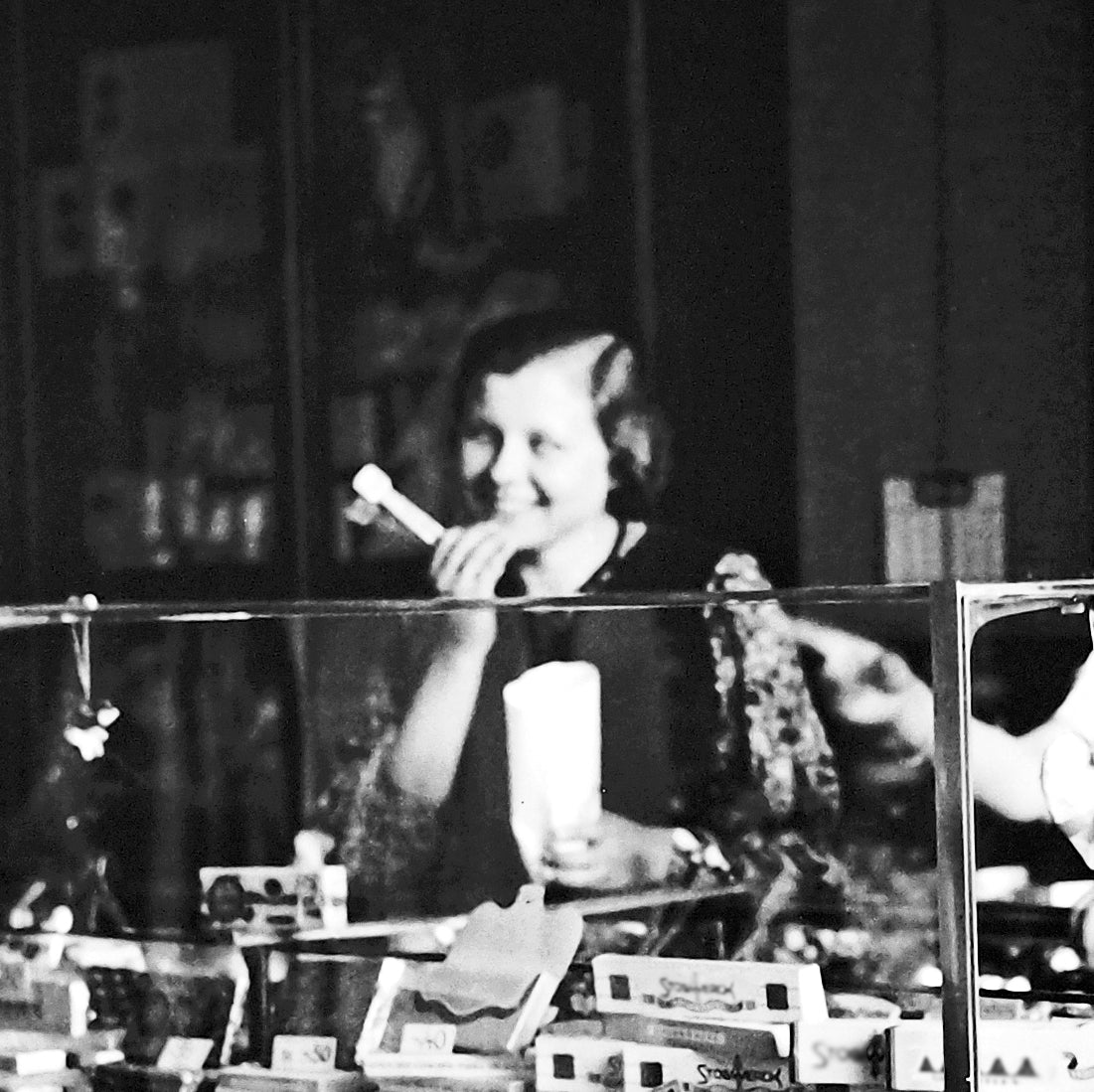
1920
PRIVATE CONFECTIONERY
In the 1920s, Wilhelm Rausch Junior developed fine chocolates, which are still lovingly and masterfully made by hand in Berlin today. The secret original recipes are still preserved by the Rausch family.
Wilhelm Rausch Junior also invents the wafer-thin bars.
These now legendary, 4 × 4 centimetre large and 1.2 millimetre thin, bite-sized bars are made of melt-in-the-mouth Rausch fine cocoa chocolate.
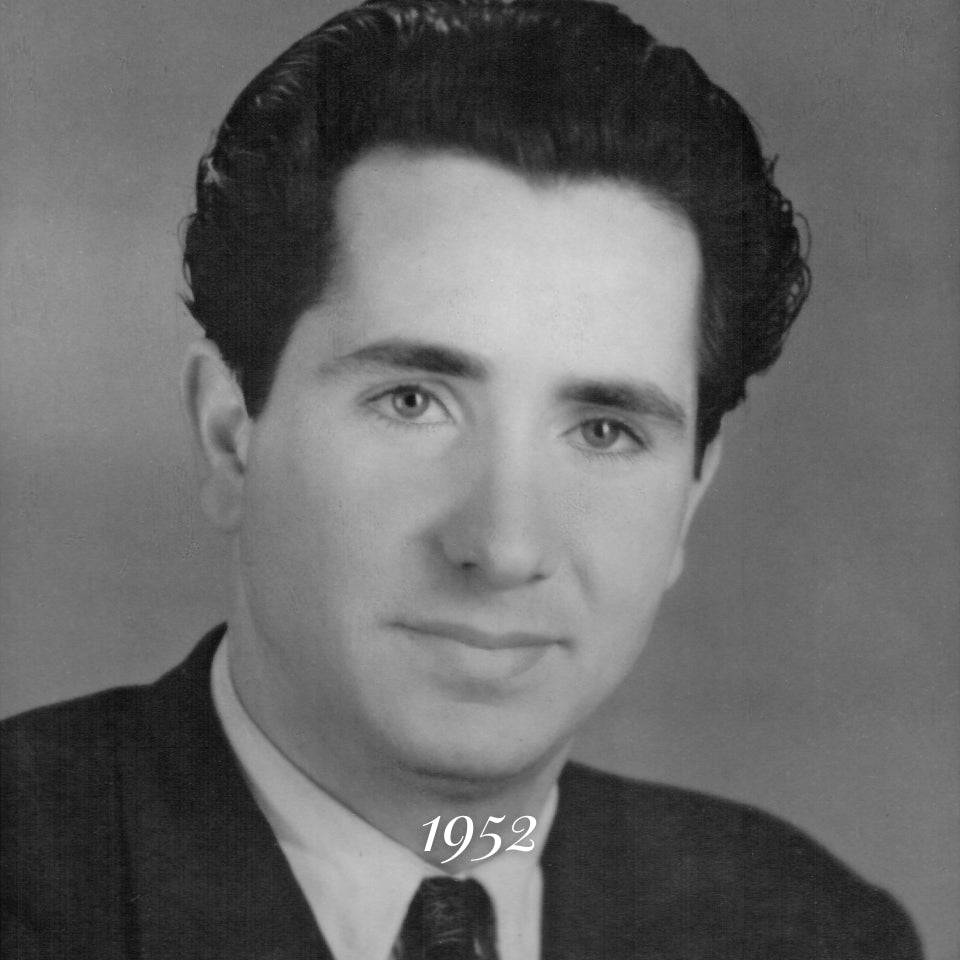
1952
TAKEOVER BY GERHARD RAUSCH
3rd generation
Gerhard Rausch takes over the management of Wilhelm Rausch Herstellung feinster Pralinen, Schokoladen und Honigkuchen oHG and brings his siblings Ilse and Willi into the company. He is the inventor of the small pralines with a unit weight of 6.7 grams, which are known under the name
"La Petite Praliné". Gerhard Rausch also invented the "Rausch chocolate bars", the first pack of individual chocolate pieces, also with a unit weight of 6.7 grams.
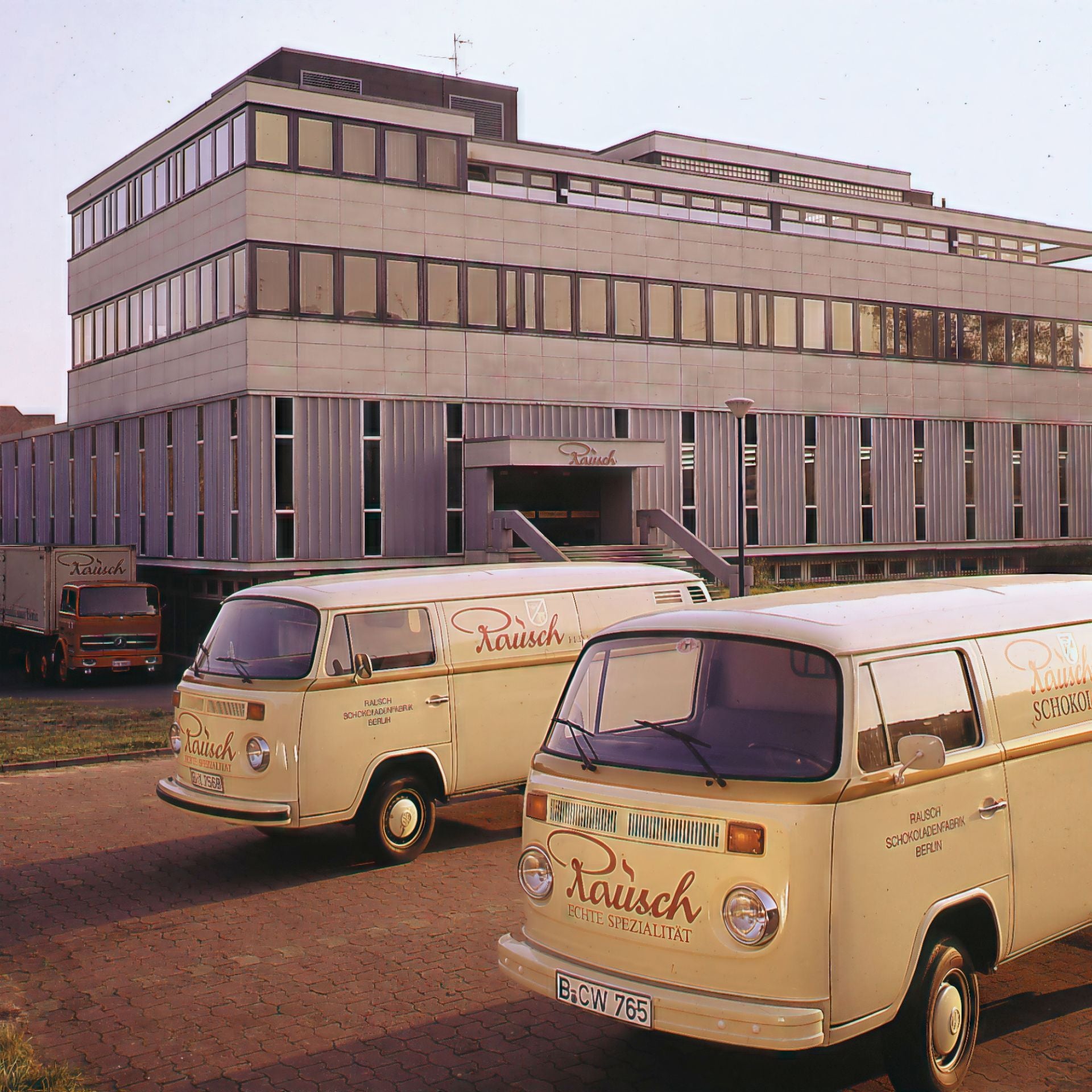
1968
CHOCOLATE MANUFACTORY
To mark the company's 50th anniversary, Gerhard Rausch opens the new chocolate manufactory in Wolframstraße in Berlin Tempelhof in the presence of the governing mayor Klaus Schütz. Chocolates, pralines, truffles and other creations are produced and refined there.
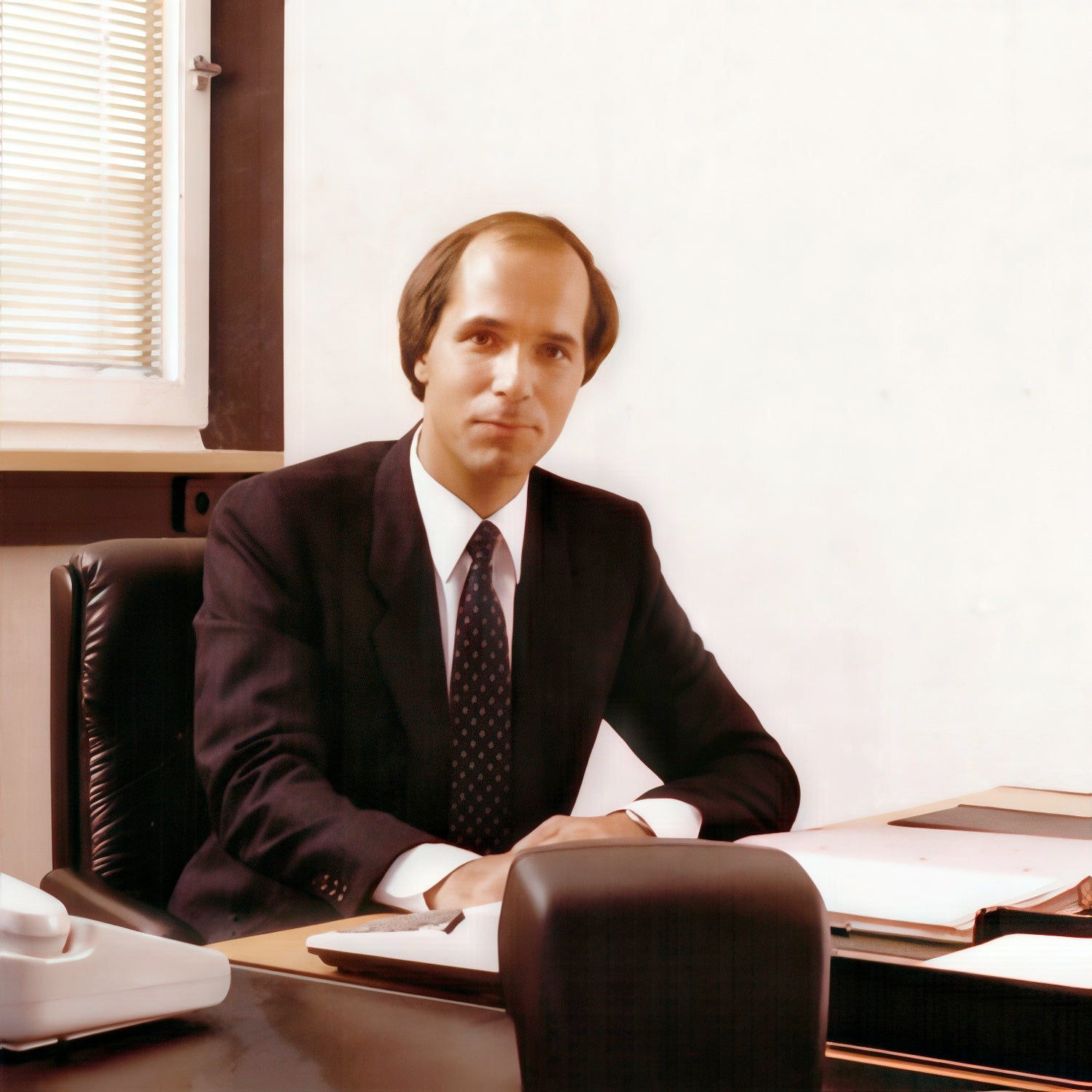
1971
TAKEOVER BY JÜRGEN RAUSCH
Jürgen Rausch, son of Gerhard Rausch, joins his family's company in 1971. From 1981 to 2023, he managed the traditional family business.
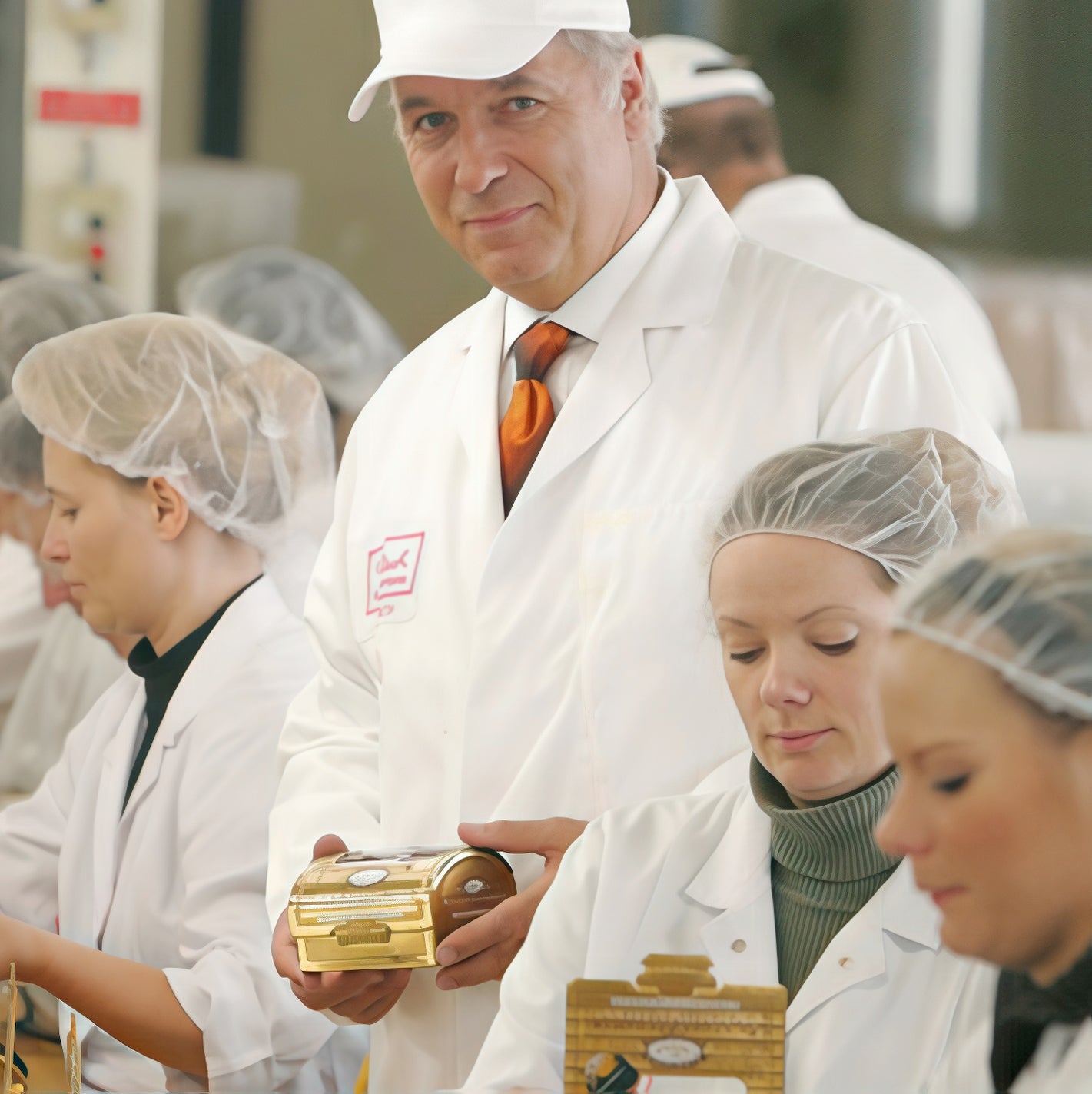
1998
PLANTATION CHOCOLATE
In 1998, Jürgen Rausch pioneered the development of Plantagen-Schokolade in Germany, a range of pure chocolates made from single-origin fine cocoa in bar form.
In 2001, the Plantagen-Schokolade range was expanded to include Rausch Minis with a unit weight of 6.7 grams - based on the Rausch chocolate bars invented in the 1950s - and in 2003, chocolate sticks weighing 40 grams.
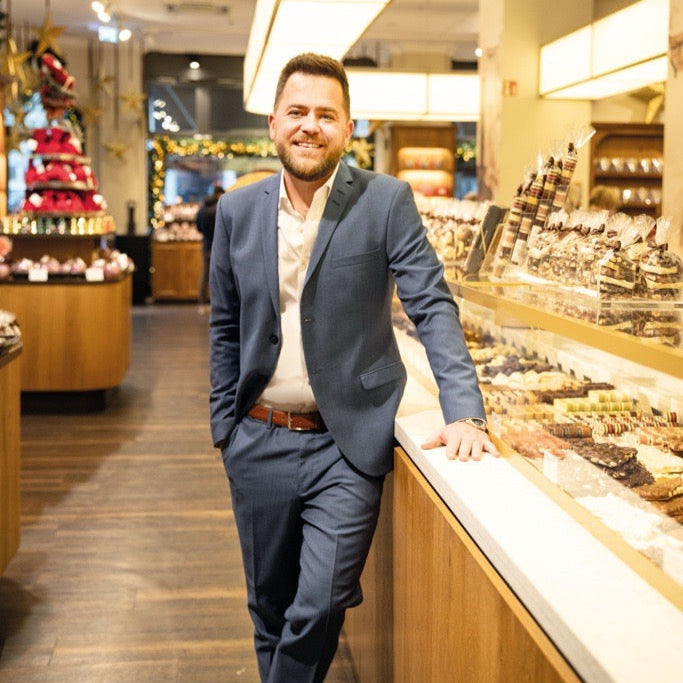
2011
ENTRY BY ROBERT RAUSCH
5th generation
Jürgen Rausch's son, Robert Rausch, joins the family business in 2011.
Robert Rausch takes over the reorientation of the brand: Fassbender & Rausch becomes Rausch. He leads the family business into the digital age. The claim remains unchanged: To produce incomparable chocolate of the best quality.
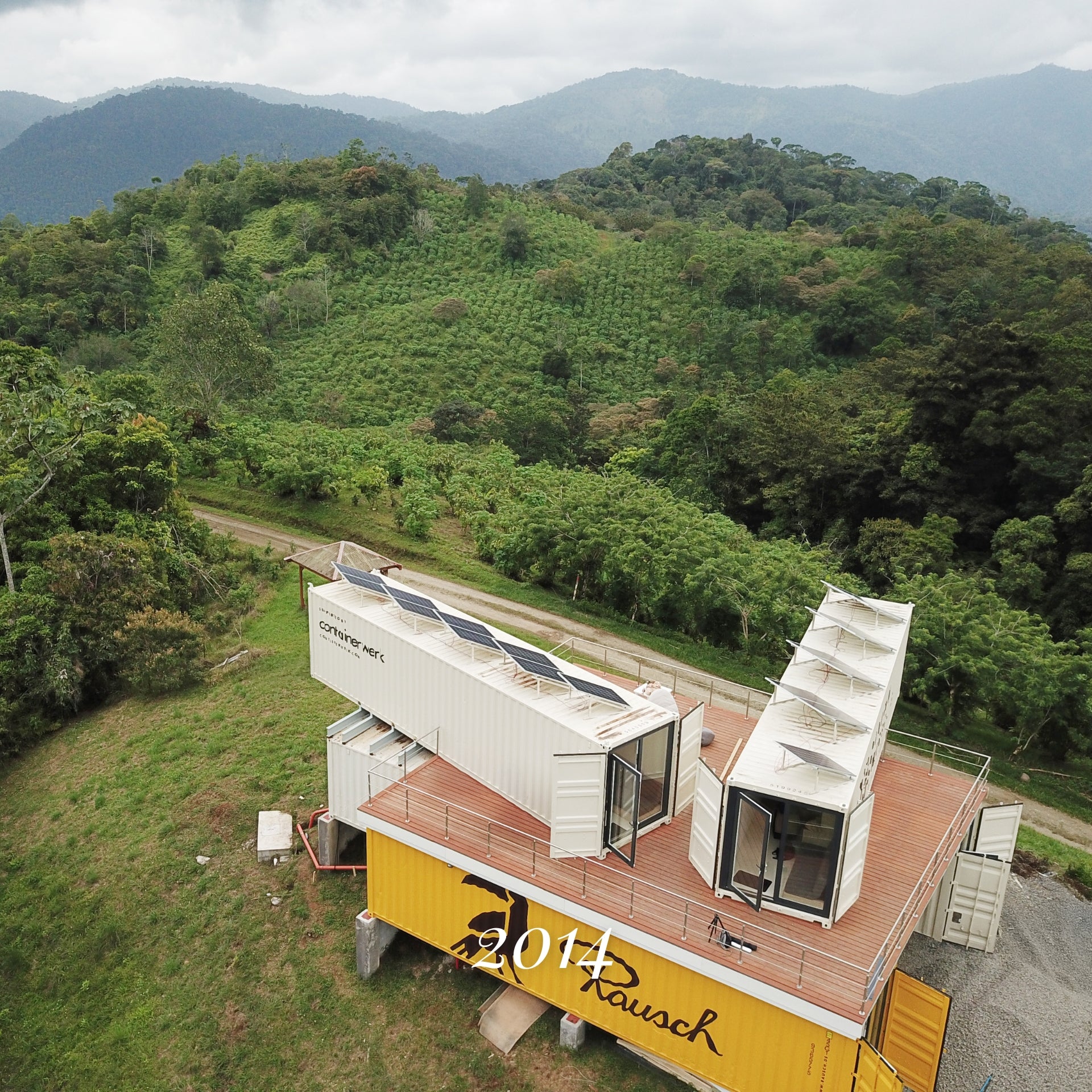
2014
Own research plantation in Costa Rica
RAUSCH TRES EQUIS - FINCA DE CACAO in Costa Rica was born out of the desire to cultivate the best fine flavor cocoa locally with the help of a team of experts, to conduct research into fine flavor cocoa and to control the entire value chain.
The farm covers around 40 hectares. It is located within sight of the impressive 3325-metre-high Turrialba volcano and borders one of Costa Rica's Wild Corridor National Parks.
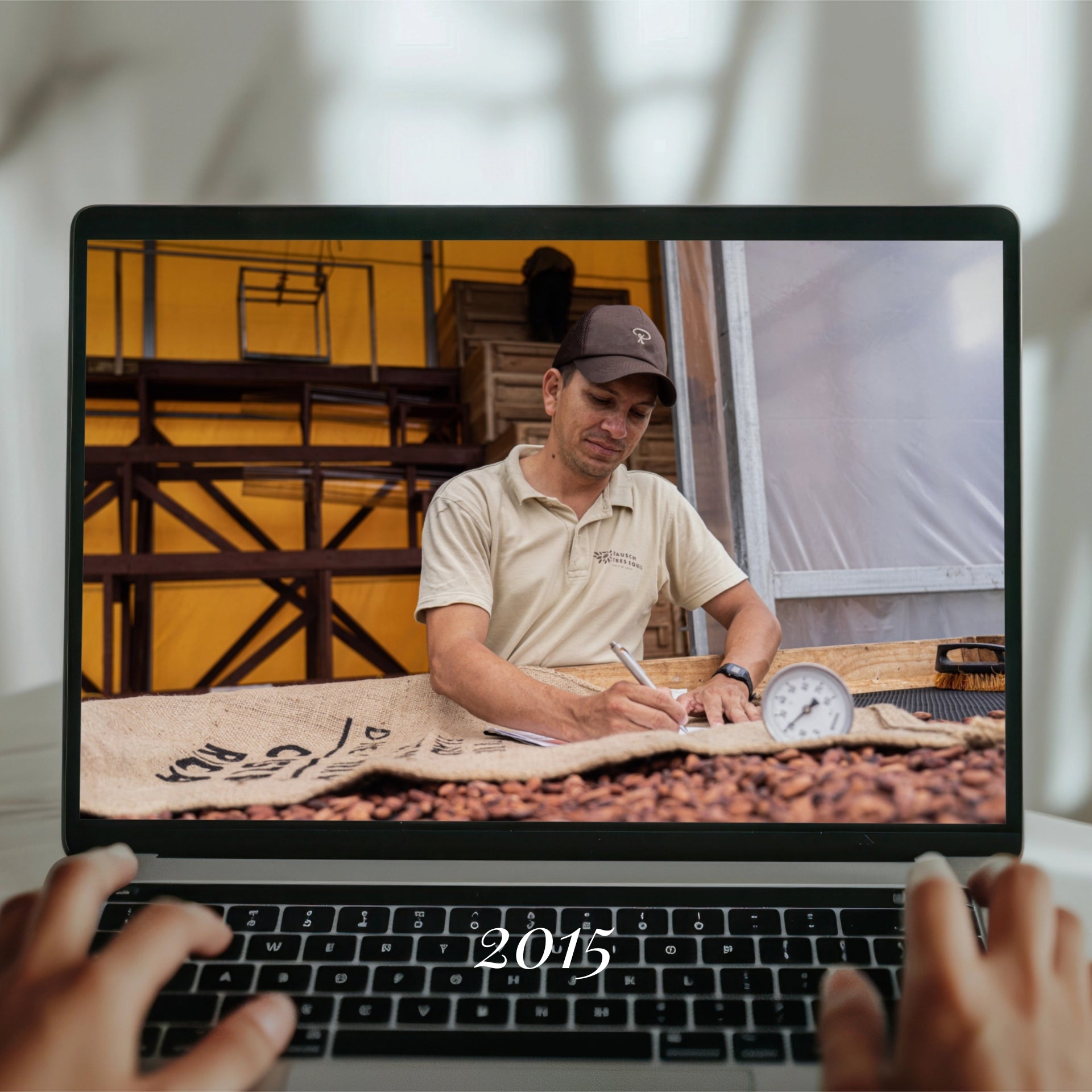
2015
Switch to direct sales
The Rausch family focuses on the direct trade approach - the most direct way to produce sustainable and fair chocolate. These exclusive chocolates are only available in the Rausch Chocolate Houses in Berlin and Peine and in the Rausch online store.
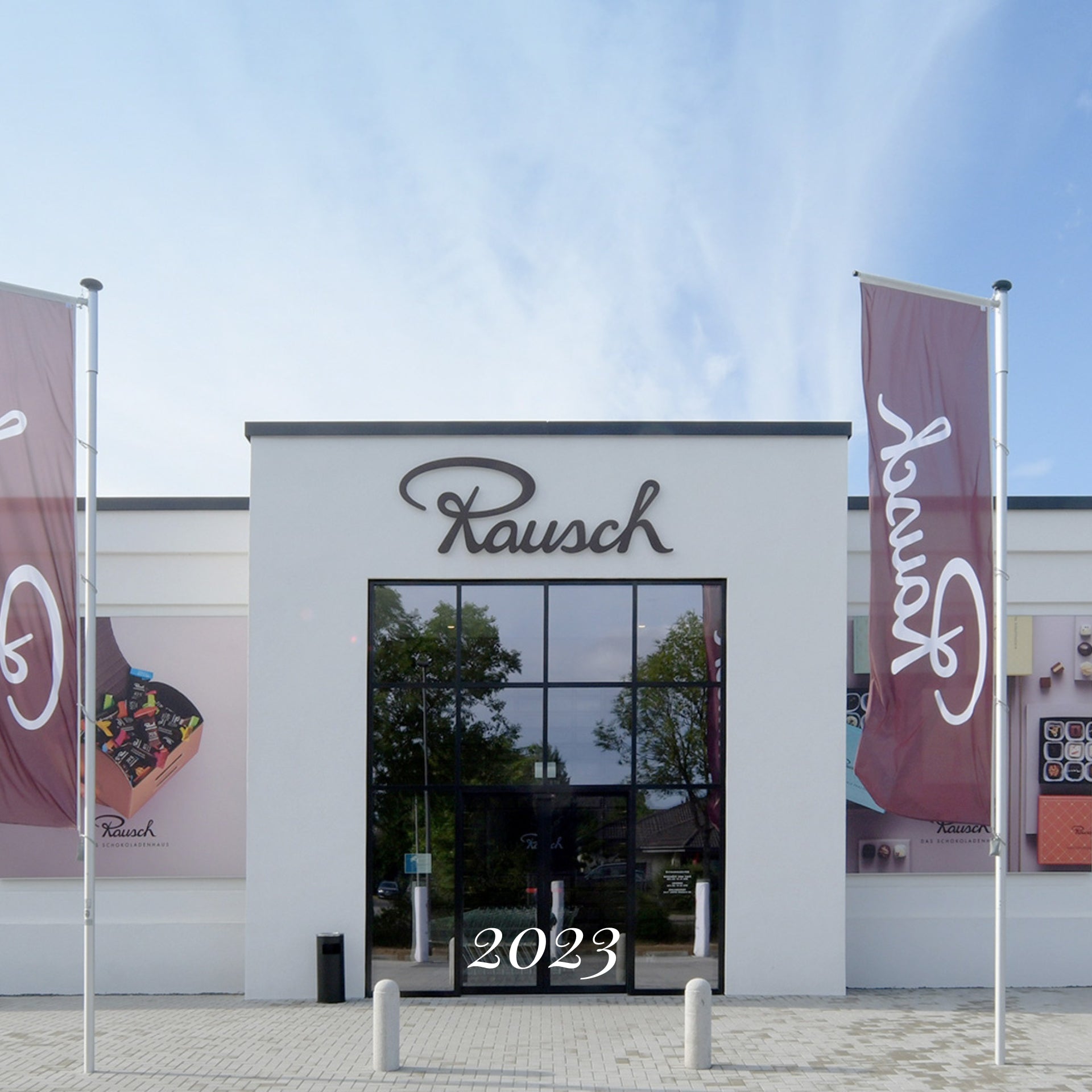
2023
Opening of the chocolate house in Peine
Another Rausch Schokoladenhaus is being built in Peine. It will also sell the fine Rausch chocolate, a café and a lounge invite you to relax and linger and the largest e-charging park for stress-free charging of electric cars.
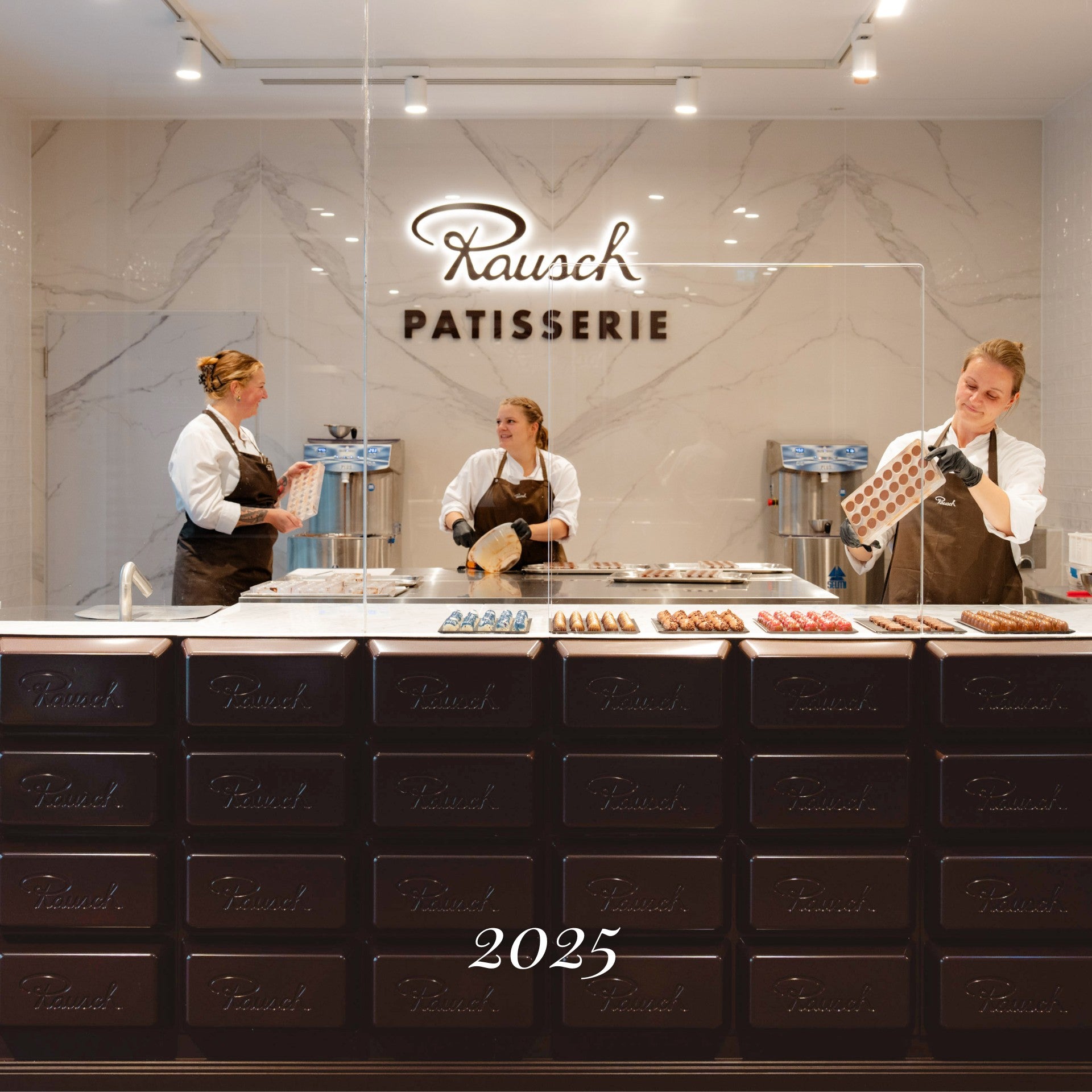
2025
Patisserie opening
The finest chocolates have been produced freshly and exclusively in the Patisserie at Schokoladenhaus Berlin since November 2025.
Lovingly handmade by our experienced patissiers and packaged in high-quality packaging, you can now order these limited edition premium chocolates online.
1890
Opening of the first confectionery by Wilhelm Rausch Senior
In 1890, Wilhelm Rausch Senior opens the first family business - a confectionery where he offers chocolates, truffles and pralines. Two years later, in 1892, his son Wilhelm Rausch Junior was born. In 1912, he learned the art of making chocolates and became a master confectioner in a Berlin court confectionery, where chocolates were made in the traditional way.
1918
Foundation of the Rausch private confectionery by Wilhelm Rausch Junior
2nd generation
In 1918, Wilhelm Rausch Junior founds the Wilhelm Rausch company in Berlin - producing the finest pralines, chocolates and honey cakes.
He runs seven of his own confectionery stores in Berlin.
1920
PRIVATE CONFECTIONERY
In the 1920s, Wilhelm Rausch Junior developed fine chocolates, which are still lovingly and masterfully made by hand in Berlin today. The secret original recipes are still preserved by the Rausch family.
Wilhelm Rausch Junior also invents the wafer-thin bars.
These now legendary, 4 × 4 centimetre large and 1.2 millimetre thin, bite-sized bars are made of melt-in-the-mouth Rausch fine cocoa chocolate.
1952
TAKEOVER BY GERHARD RAUSCH
3rd generation
Gerhard Rausch takes over the management of Wilhelm Rausch Herstellung feinster Pralinen, Schokoladen und Honigkuchen oHG and brings his siblings Ilse and Willi into the company. He is the inventor of the small pralines with a unit weight of 6.7 grams, which are known under the name
"La Petite Praliné". Gerhard Rausch also invented the "Rausch chocolate bars", the first pack of individual chocolate pieces, also with a unit weight of 6.7 grams.
1968
CHOCOLATE MANUFACTORY
To mark the company's 50th anniversary, Gerhard Rausch opens the new chocolate manufactory in Wolframstraße in Berlin Tempelhof in the presence of the governing mayor Klaus Schütz. Chocolates, pralines, truffles and other creations are produced and refined there.
1971
TAKEOVER BY JÜRGEN RAUSCH
Jürgen Rausch, son of Gerhard Rausch, joins his family's company in 1971. From 1981 to 2023, he managed the traditional family business.
1998
PLANTATION CHOCOLATE
In 1998, Jürgen Rausch pioneered the development of Plantagen-Schokolade in Germany, a range of pure chocolates made from single-origin fine cocoa in bar form.
In 2001, the Plantagen-Schokolade range was expanded to include Rausch Minis with a unit weight of 6.7 grams - based on the Rausch chocolate bars invented in the 1950s - and in 2003, chocolate sticks weighing 40 grams.
2011
ENTRY BY ROBERT RAUSCH
5th generation
Jürgen Rausch's son, Robert Rausch, joins the family business in 2011.
Robert Rausch takes over the reorientation of the brand: Fassbender & Rausch becomes Rausch. He leads the family business into the digital age. The claim remains unchanged: To produce incomparable chocolate of the best quality.
2014
Own research plantation in Costa Rica
RAUSCH TRES EQUIS - FINCA DE CACAO in Costa Rica was born out of the desire to cultivate the best fine flavor cocoa locally with the help of a team of experts, to conduct research into fine flavor cocoa and to control the entire value chain.
The farm covers around 40 hectares. It is located within sight of the impressive 3325-metre-high Turrialba volcano and borders one of Costa Rica's Wild Corridor National Parks.
2015
Switch to direct sales
The Rausch family focuses on the direct trade approach - the most direct way to produce sustainable and fair chocolate. These exclusive chocolates are only available in the Rausch Chocolate Houses in Berlin and Peine and in the Rausch online store.
2023
Opening of the chocolate house in Peine
Another Rausch Schokoladenhaus is being built in Peine. It will also sell the fine Rausch chocolate, a café and a lounge invite you to relax and linger and the largest e-charging park for stress-free charging of electric cars.
2025
Patisserie opening
The finest chocolates have been produced freshly and exclusively in the Patisserie at Schokoladenhaus Berlin since November 2025.
Lovingly handmade by our experienced patissiers and packaged in high-quality packaging, you can now order these limited edition premium chocolates online.












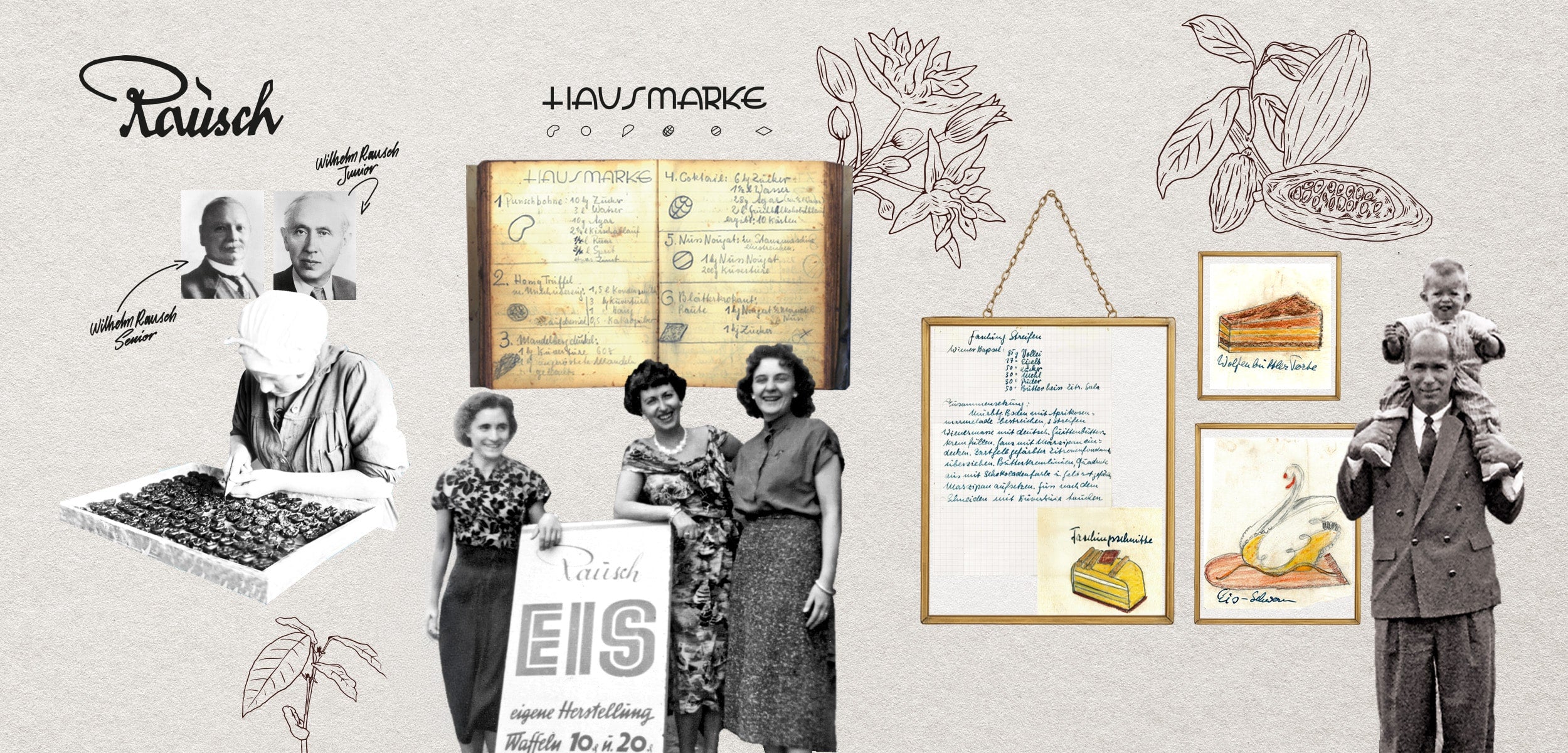
As a Berlin-based family business, Rausch has been making people happy with chocolate for over 100 years
Recipe book with new praline creations.
Original notes by Willi Rausch
during his master school in Wolfenbüttel, 1950
Margot Rausch with two ladies in front of an ice cream stand
Jürgen Rausch with son Robert
THE FACES BEHIND THE CHOCOLATE
Long-standing employees introduce themselves.
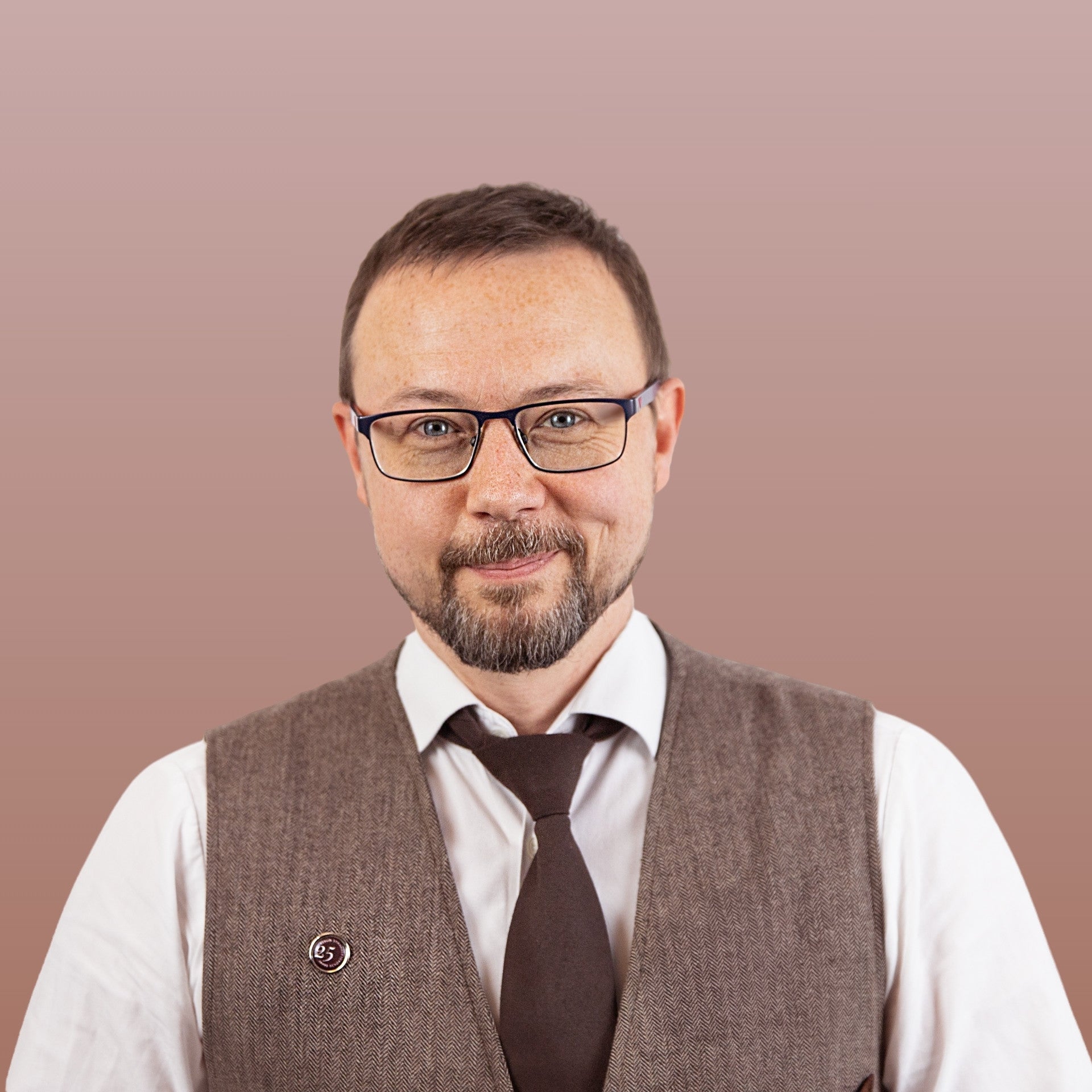
First seller
Kai Kraft
I have been working at Rausch for almost 11 years.
My area of responsibility includes everything to do with the longest chocolate counter in the world and organizing the daily routine of our sales team.
I really appreciate the comparatively short official channels and the proximity to the Rausch family. I also have a say in various projects and processes.
I have many favorite products. Among them are all three of the pure fine milk cocoa chocolates (Grenade, Venezuela and Madagascar). The Ecuador 70% drinking chocolate with a home-made bird's eye chili sugar solution is also an absolute soul-stroker for me. Simply perfect - and not just on cold, cozy evenings.
Before I came to Rausch, I was employed for almost 10 years in a confectionery that sold Rausch Santas and Easter bunnies during the season. I became a fan and regular customer at Rausch and knew that I wanted to work here one day. Since then, I have not only been an employee, but an integral part of the Rausch family business.
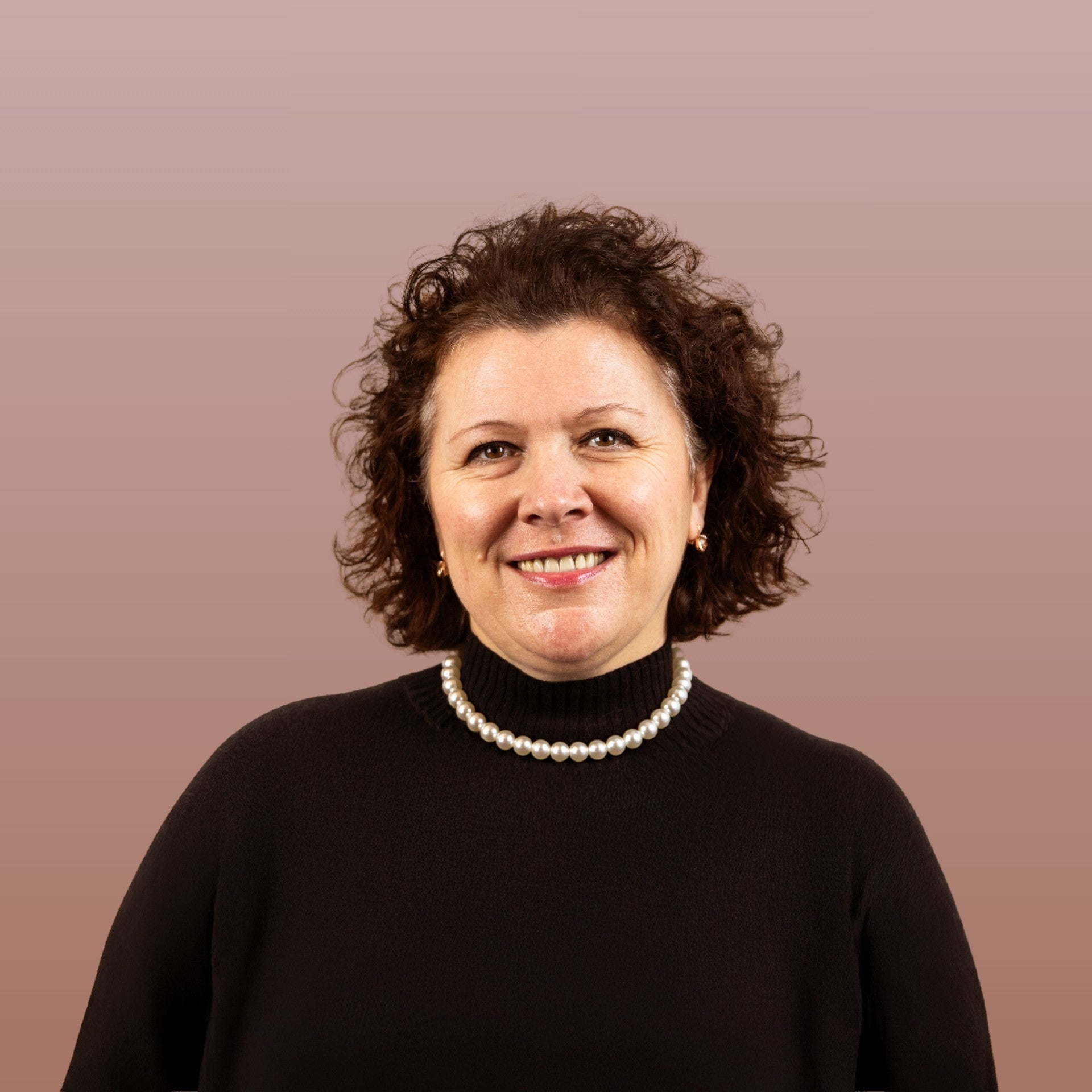
Team leader Rausch Deli
Alena Toschi
I have been working at Rausch Deli for 12 years.
Rausch is a 5th generation family business that has become a second family to us employees. The company is constantly evolving and innovative. Rausch is respectful, family-friendly and interested in the satisfaction of its employees.
My favorite product is the fine cocoa chocolate Madagascar 55% and the drinking chocolate, which is available in our Deli half and half (Venezuela 43% and Ecuador 70% fine cocoa drinking chocolate).
Chocolate makes us happy, so let's be happy.

Café and Deli management
Marco Garche
I've been with the company for 19 years. Six months before the renovation and opening of the Rausch chocolate café.
Together with my team, I am responsible for the café and our out-of-home sales in the Rausch Deli.
At Rausch, we develop ourselves, we develop our product, we move with the times. Innovation paired with the responsible use of resources is just as important a goal as living our own values and appreciating them. Do we always achieve our goals? Do we realize all our ideas? Not at all - but we always draw positive lessons from the path we have taken, from the experiences we have made and thus gain valuable insights for new projects.
The hot drinking chocolate with 70% Ecuador dark cocoa and an orange flavor inspires me just as much as our hazelnut coffee tartlet and the cheesecake...!
In the meantime, I have taken part in many events, renovations and renovations, award ceremonies and company celebrations and have seen, heard, experienced and witnessed a lot: from the opening of the café in 2006, when 4 hours before the opening there was still no table or chair in place, to singing managing directors and parachuting employees, to the adventures of "Indiana Rausch" in the growing regions of our fine flavor cocoa - to name just a few.
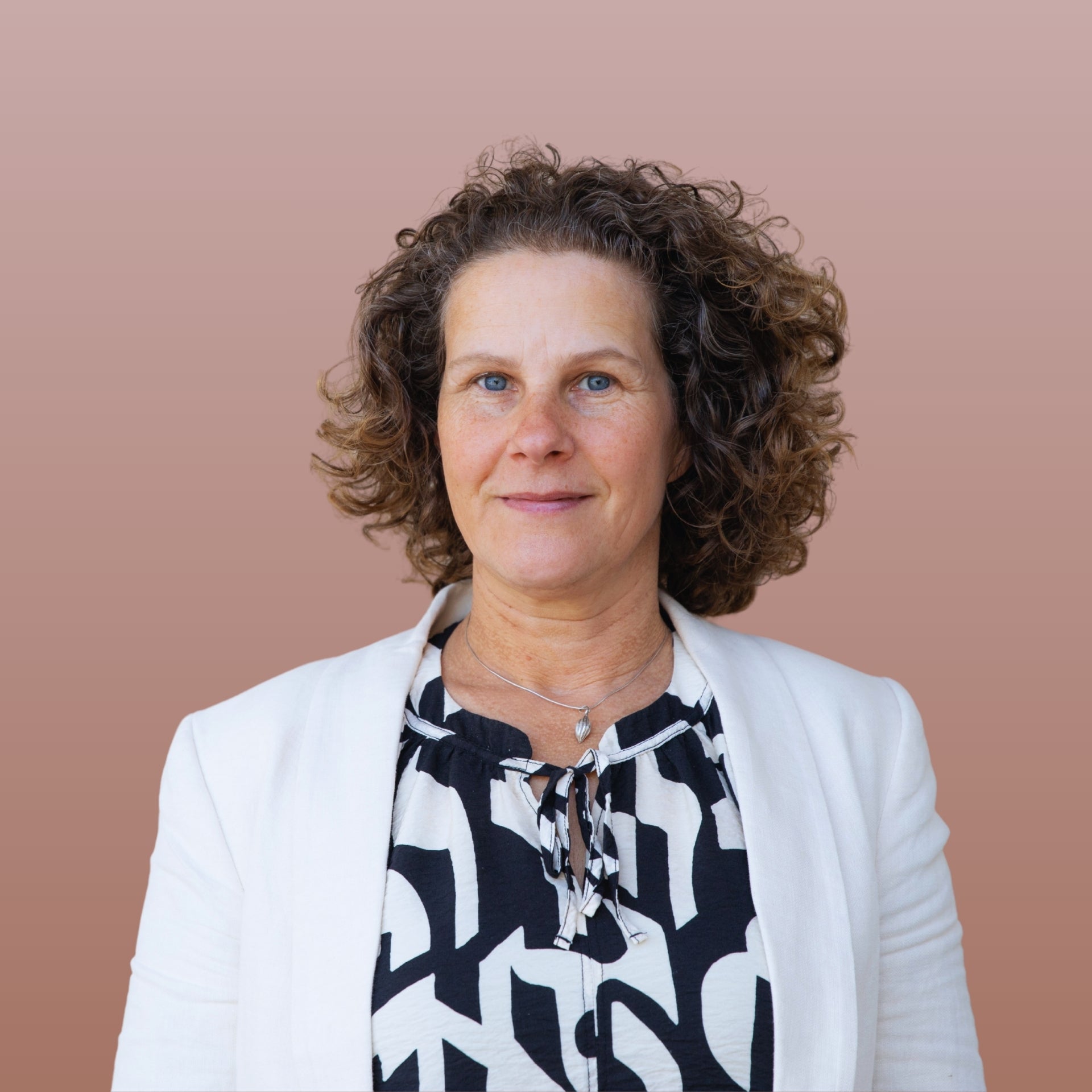
Head of the cocoa and research department
Dr. Christina Rohsius
I have been working for Rausch since 2006.
My main task is to ensure the quality and availability of our most important raw material - raw cocoa. We source the raw cocoa directly and I am in direct contact with our partners. We visit the plantations every year if possible. I accompany the fine flavor cocoa from cultivation through the post-harvest processes to storage at the origin and shipment to Germany. I check the quality at every step of the supply chain. I am also responsible for our cocoa research institute on our own plantation (Rausch PCE - Finca de Cacao).
Our aim is to produce cocoa in a socially and environmentally responsible way and to maintain the best quality in the long term.
The trips are exciting. Strategic planning and reality mix on the trips. Working in my field requires experience, planning and knowledge, the exchange with our partners is varied and enriching and judging the raw cocoa by its aroma is simply fantastic.
My absolute favorite - although hard to get - is the Colombian cocoa and thus the 93% chocolate.
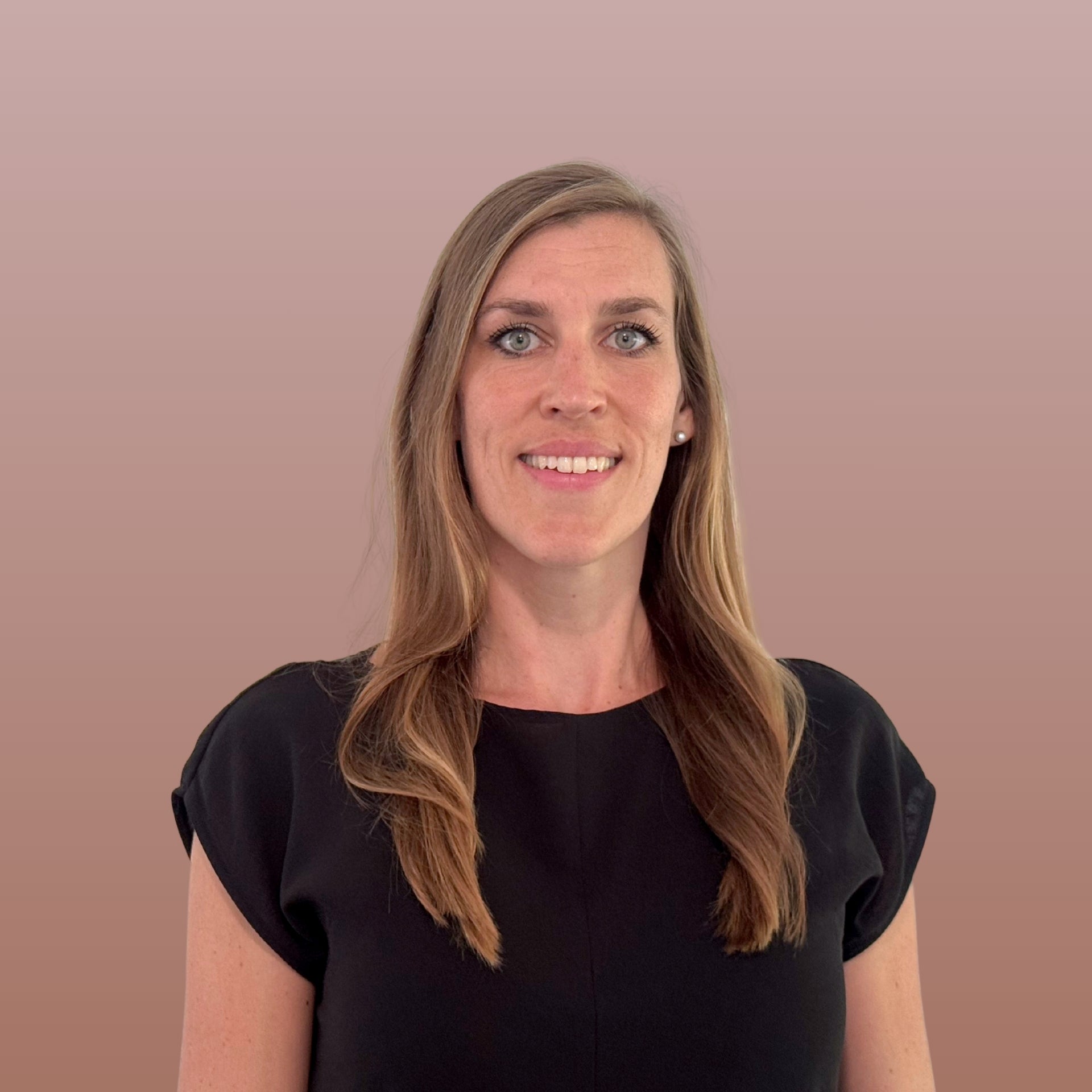
Project management Rausch Tres Equis - Finca de Cacao
Dr. Elsa Hegmann
I joined Rausch in 2012 when I was researching the quality of new fine flavor cocoa varieties from Costa Rica as part of my doctoral thesis.
Since then, the years of "living la vida cocoa" have passed, during which I have come into contact with many people and cultures, tested countless raw cocoa beans and got to know almost all facets of cocoa cultivation.
I have traveled a lot to the countries of origin to build long-term partnerships and train the fine flavor cocoa producers in sustainable cultivation and post-harvest management.
I have been running the Rausch Fine Flavor Cocoa Institute in Costa Rica since 2018. Here we are dedicated to the cultivation, fermentation and drying of the finest fine flavor cocoa.
Together with Dr. Christina Rohsius, we ensure that our standards not only exist on paper, but are also put into practice!
I appreciate the great colleagues, the trust and the motivation to try new things. This trust enables us to grow together.I appreciate the variety of tasks, the direct involvement at the source and the consistent focus on quality.
The Ecuador 70% drinking chocolate (originally prepared) is and remains my favorite. It's simply unbeatable. Pure happiness in every sip.
The taste of tradition
This is where inventiveness meets over 100 years of family tradition.
74,63 € I 1 kg
52,50 € I 1 kg
69,63 € I 1 kg
55,97 € I 1 kg
64,45 € I 1 kg
92,71 € I 1 kg
98,89 € I 1 kg
62,29 € I 1 kg
62,29 € I 1 kg
62,29 € I 1 kg
46,40 € I 1 kg
46,40 € I 1 kg
